Looking for the best museums in Saxony-Anhalt? These are the best ones:
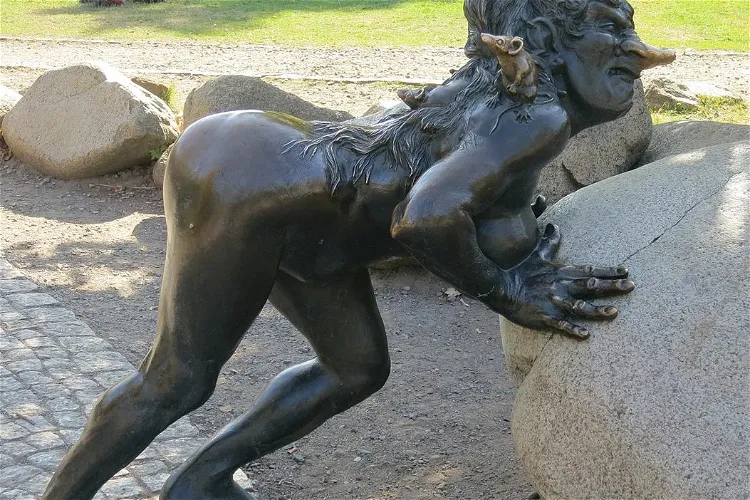
Hexentanzplatz Zoo
ThaleAbove the Hexentanzplatz, visitors can find the remains of the Sachsenwall. This wall, made of granite rocks, is believed to be part of a larger fortification that is over 1,500 years old. This historical site provides a glimpse into the past and the rich history of the area.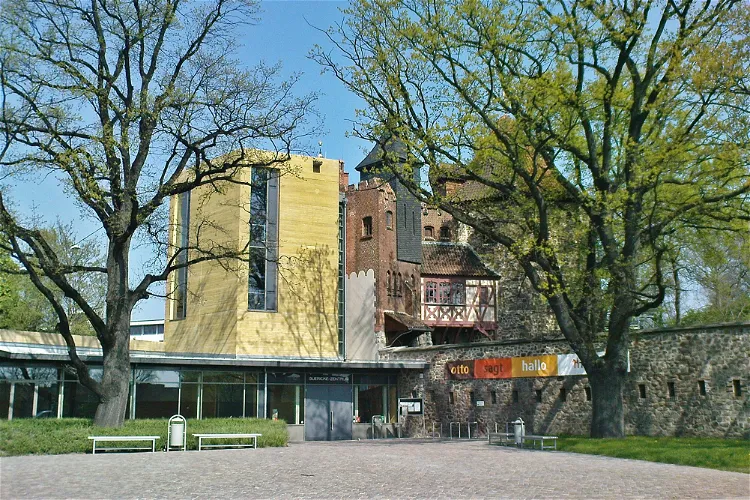
Otto-von-Guericke-Museum
Magdeburg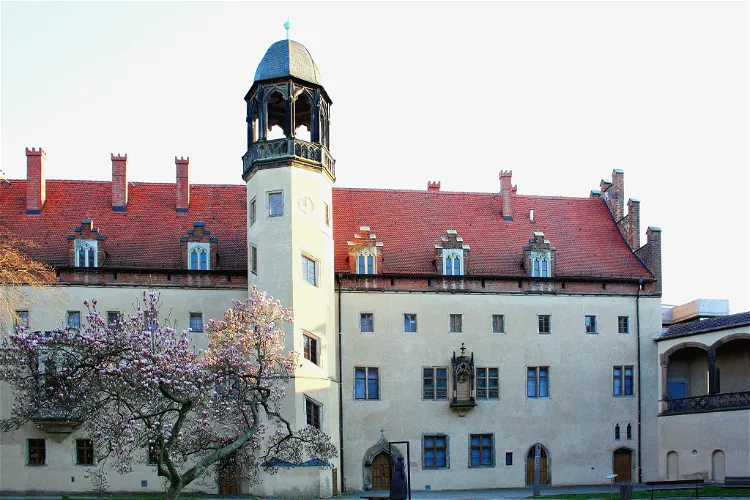
Luther Hall
WittenbergThe Luther House, or Lutherhaus in German, is a significant historical site in Wittenberg, Germany. It served as the home of Martin Luther, the Protestant reformer and founder of Lutheranism, for over 35 years. Today, it stands as a museum, offering visitors a glimpse into the life and work of this influential figure.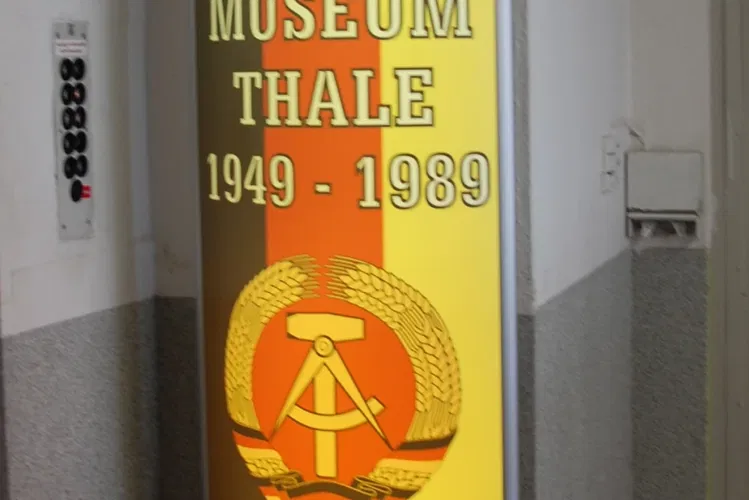
DDR MUSEUM THALE
ThaleThe DDR-Museum Thale, located in Thale, Saxony-Anhalt, is a museum that primarily focuses on the living and everyday culture in the DDR (East Germany). It provides a unique insight into the lifestyle and daily routines of the people during the era of East Germany, making it a fascinating destination for those interested in history and culture.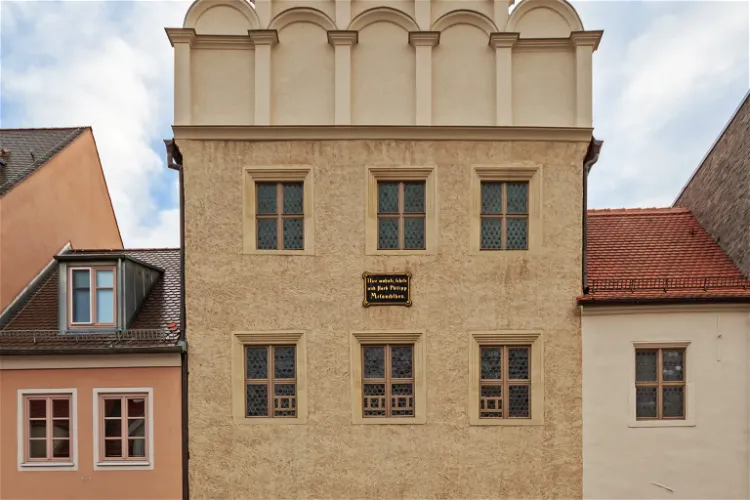
Melanchthon’s House
WittenbergThe Melanchthonhaus in Lutherstadt Wittenberg is a remarkable Renaissance building, known for its late Gothic framed windows and a round-arched tiered gable. Its architectural beauty makes it one of the most attractive townhouses in the city, offering a glimpse into the architectural style of the Renaissance period.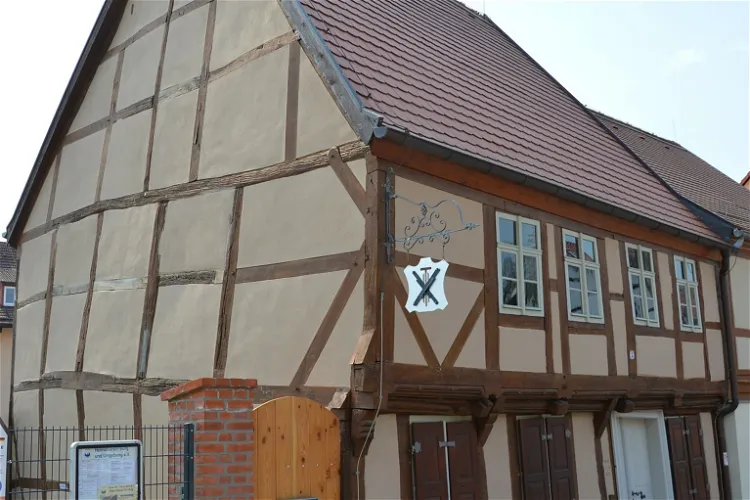
Historische Gerberei
Burg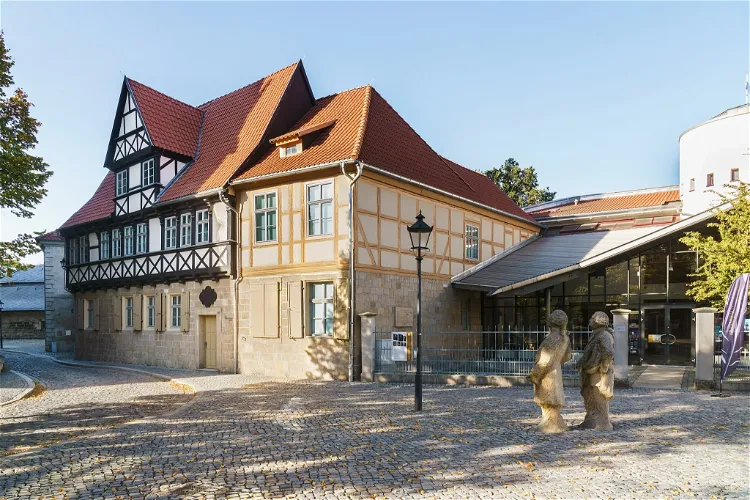
Gleimhaus
HalberstadtThe Gleimhaus in Halberstadt, built in 1862, is recognized as one of the oldest literary museums in Germany. It is situated in the former residence of the renowned poet and collector, Johann Wilhelm Ludwig Gleim. This historical significance of the museum, combined with its rich literary heritage, makes it a fascinating destination for tourists interested in German literature and history.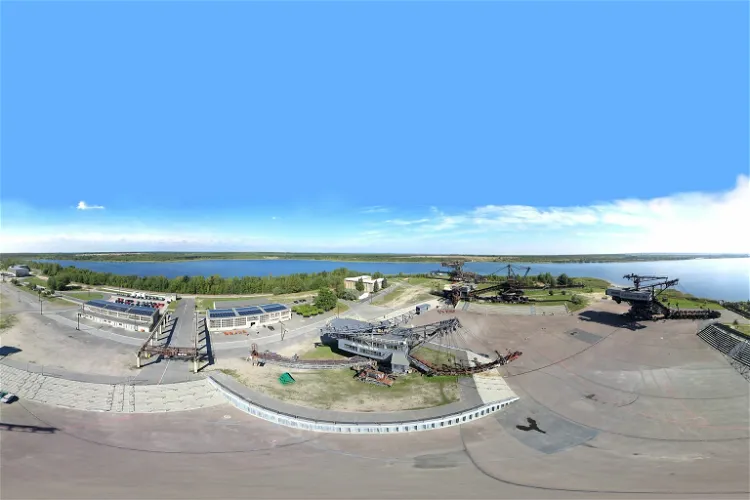
Ferropolis
GräfenhainichenFerropolis, also known as the 'City of Iron', is an industrial museum and event venue situated in Gräfenhainichen, east of Dessau-Roßlau. It is located on a peninsula in the Gremminer See, which was formerly the open-cast mine Golpa-Nord. This unique location offers visitors a chance to explore the history of the mining industry while enjoying the natural beauty of the surrounding area.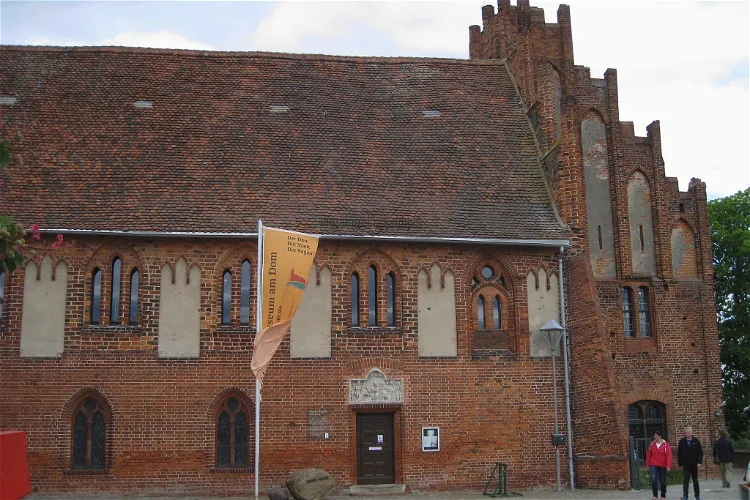
Prignitz-Museum
HavelbergThe Prignitz-Museum in Havelberg welcomes more than 10,000 visitors annually and is open throughout the year. This makes it a popular destination for tourists and locals alike. The museum's year-round availability allows visitors to plan their visit at a time that suits them best, making it a convenient option for those exploring the region.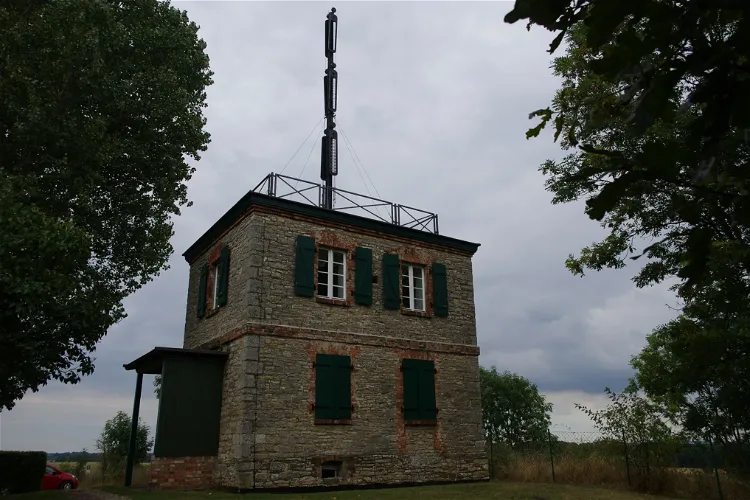
Telegrafenstation Nr. 18
Am Großen Bruch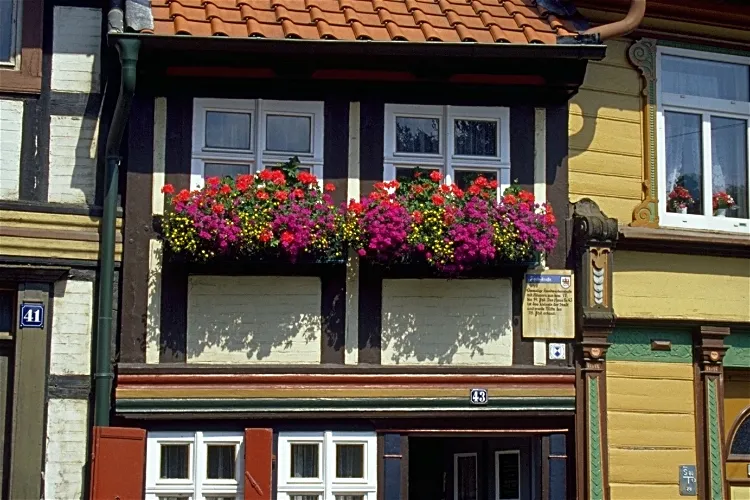
Kleinstes Haus
WernigerodeThe smallest house in the city, located in Wernigerode, is a socio-historical cultural monument. Its small size has made it famous and it is now home to a small folk museum. This unique piece of architecture offers a glimpse into the past, showcasing the living conditions of the city's poorer inhabitants during the late 18th century.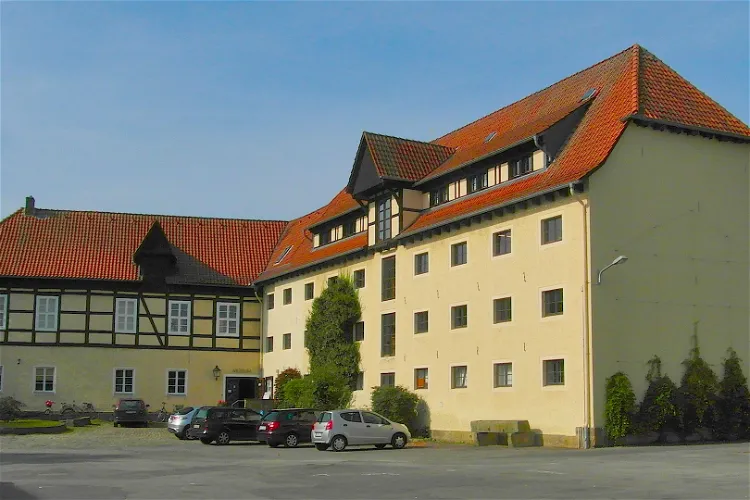
Ilsenburg Abbey
IlsenburgIlsenburg Abbey, located near Wernigerode in Saxony-Anhalt, Germany, was a monastery of the Benedictine Order. This historical site offers a glimpse into the religious and architectural history of the region.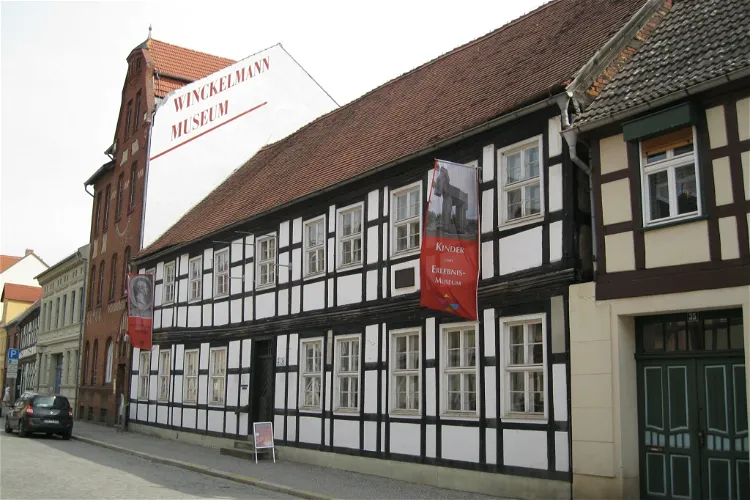
Winckelmann Museum
StendalThe Winckelmann Museum, located in Stendal, is dedicated to the life and work of Johann Joachim Winckelmann, the founder of Classical Archaeology. The museum is situated at the birthplace of Winckelmann and was opened on January 31, 1955. It remains the only museum dedicated to Winckelmann and his contributions to the field of archaeology.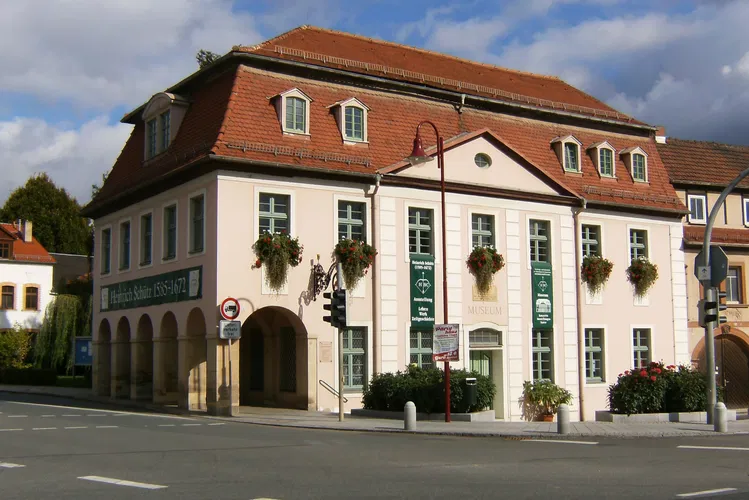
Heinrich Schütz House, Bad Köstritz
DürrenbergThe Heinrich Schütz House, located in Bad Köstritz, Thuringia, Germany, is a cultural site dedicated to the life and work of the renowned composer Heinrich Schütz. This historic building, where Schütz was born, now serves as a museum, providing visitors with a comprehensive understanding of the composer's life, his contributions to music, and his cultural background.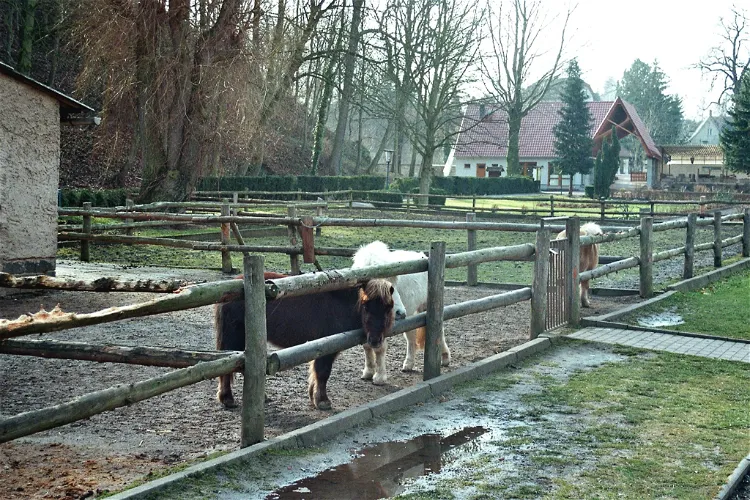
Walbeck Zoo
Hettstedt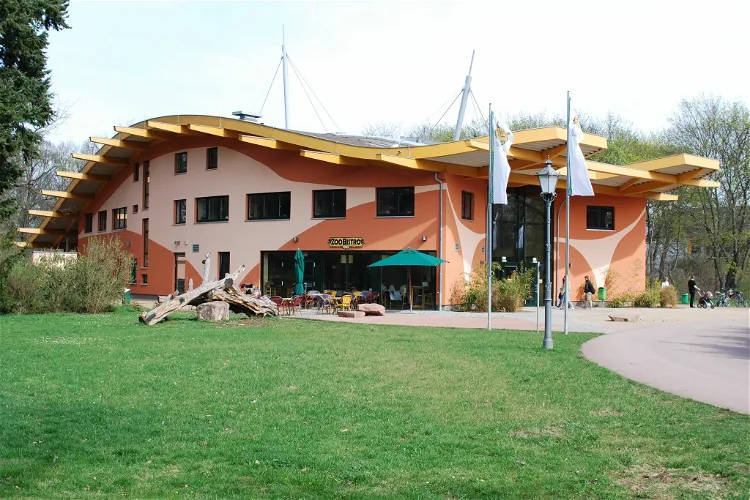
Zoo Magdeburg
MagdeburgMagdeburg Zoo, also known as Zoologischer Garten Magdeburg or Zoo Magdeburg, is situated in the city of Magdeburg, in the region of Sachsen-Anhalt, Germany. This location makes it easily accessible for tourists visiting the region.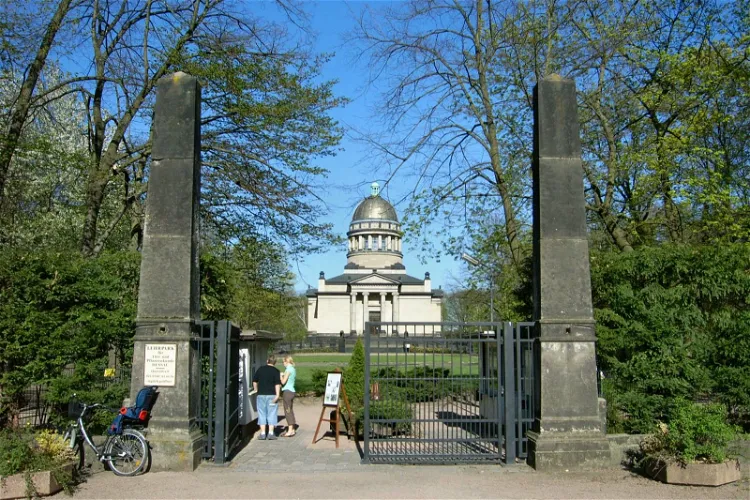
Dessau Zoo
DessauThe Dessau Zoo, situated in the city of Dessau-Roßlau, is a significant recreational area that attracts over 120,000 visitors annually. Established in 1958 within the park of a 19th-century mausoleum, the zoo spans across 11 hectares. It is located in the Ziebigk district, immediately east of the Georgium, and forms a large landscape park together with the Georgengarten and Beckerbruch, although it is not part of the Dessau-Wörlitzer Garden Realm World Heritage Site.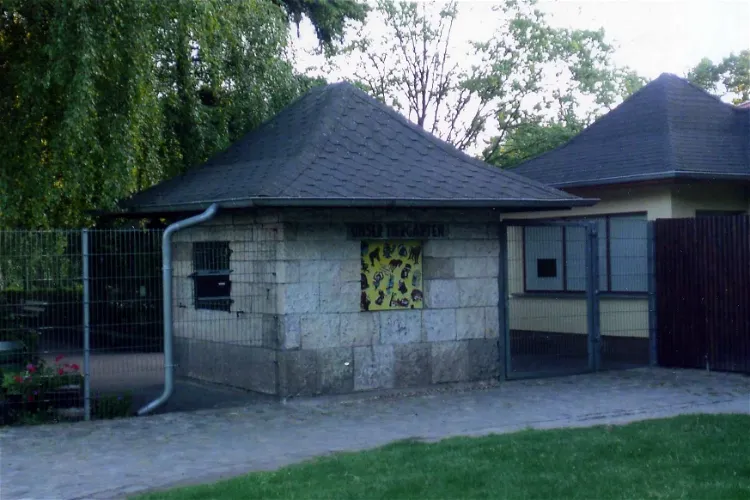
Tiergarten Stendal
StendalThe Tiergarten Stendal, a zoo located in the Stadtsee district of Stendal, is a place where visitors can enjoy a variety of wildlife. The zoo is home to a diverse range of animals, making it a great place for families and animal lovers to explore.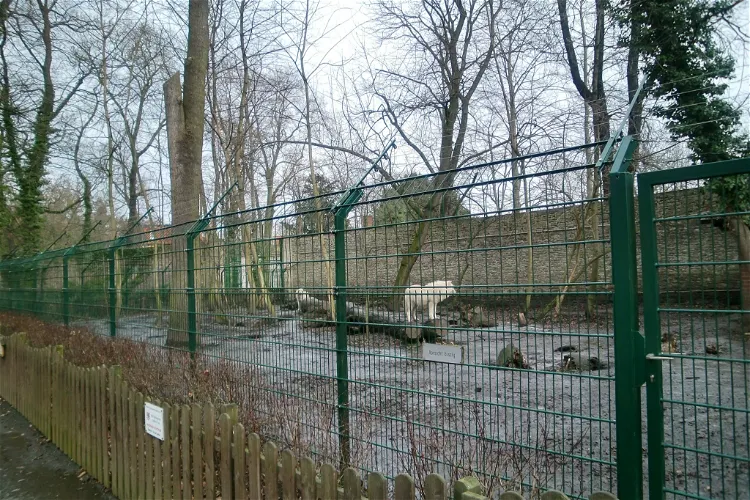
Staßfurt Zoo
StaßfurtThe Staßfurt Zoo is a significant attraction located in the city of Staßfurt in Saxony-Anhalt. The zoo is mostly situated within the city walls, covering an expansive area of 5.5 hectares. This large space allows for a diverse range of animal habitats and visitor facilities.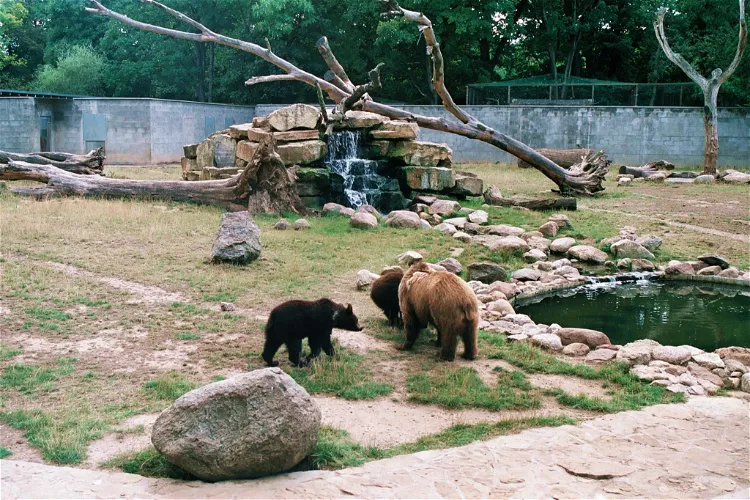
Bernburg Zoo
Bernburg (Saale)Bernburg Zoo is situated in the city of Bernburg (Saale) in Saxony-Anhalt. It is part of the Krumbholz recreational area in the Lower Saale Valley Nature Park, nestled between the Saale and Federal Highway 185. This location offers visitors a chance to enjoy the natural beauty of the area while exploring the diverse range of animals at the zoo.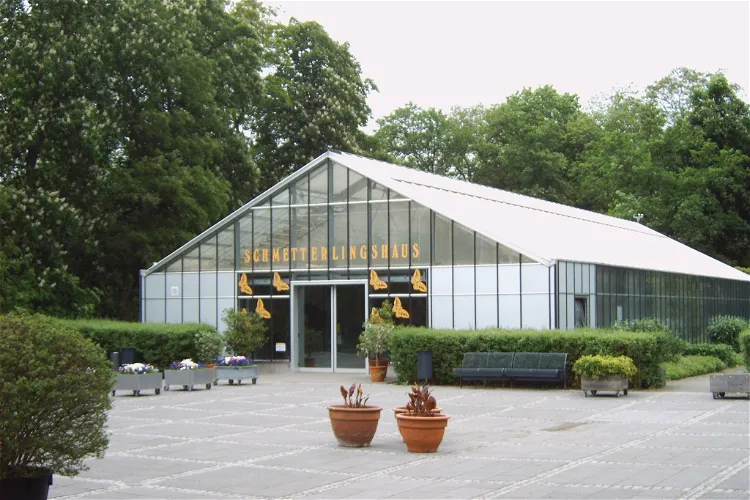
Schmetterlingshaus
MagdeburgThe Schmetterlingshaus, located within the Elbauenpark in Magdeburg, is a butterfly zoo that offers a unique experience for nature lovers. It is situated on the north side of the park and is home to a diverse range of butterfly species.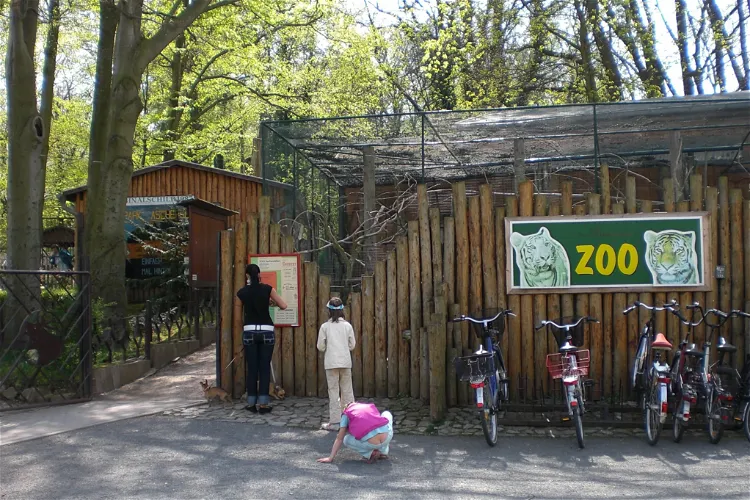
Zoo Aschersleben
AscherslebenThe Zoo Aschersleben is a popular destination located in the southwest of the city Aschersleben in Saxony-Anhalt. It attracts approximately 100,000 visitors each year, making it a frequented spot for both locals and tourists alike. The zoo offers a unique blend of natural beauty and diverse wildlife, providing an engaging and educational experience for all ages.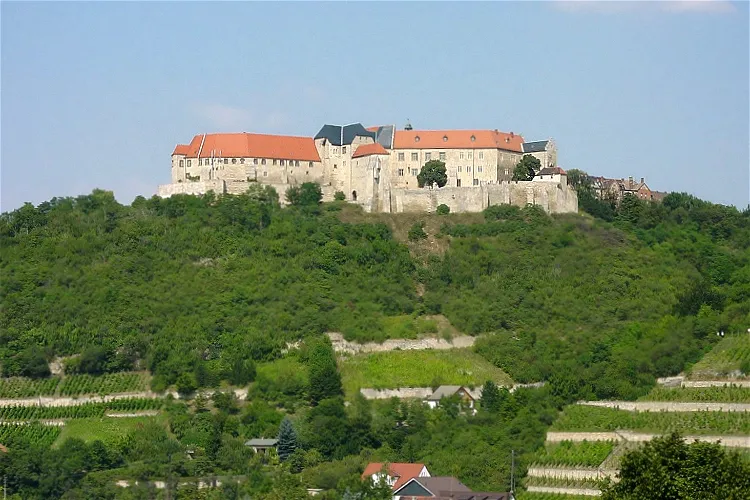
Neuenburg Castle
Freyburg (Unstrut)Neuenburg Castle is a prominent hilltop castle that offers a panoramic view of Freyburg, a charming town in the state of Saxony-Anhalt, Germany. Its elevated position not only provides a strategic advantage but also offers visitors a unique perspective of the surrounding landscape.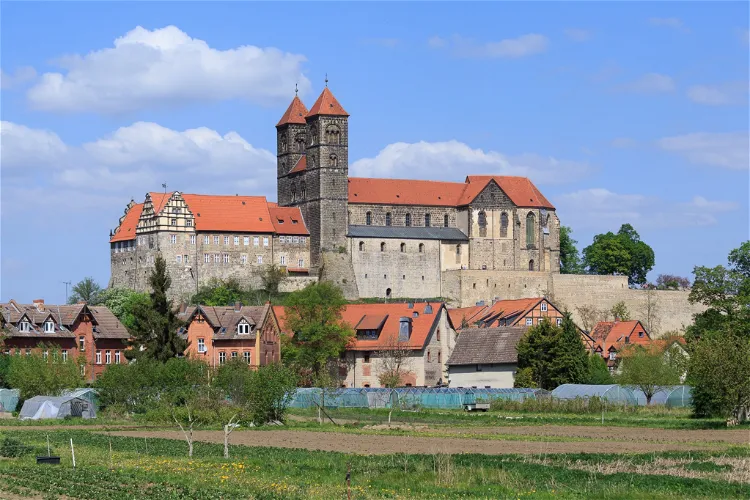
Stiftskirche St. Servaii Domschatz Quedlinburg
QuedlinburgThe Stiftskirche St. Servatius, also known as the Quedlinburg Cathedral, is a Protestant religious building located in Quedlinburg, Germany. This historic structure is a significant part of the city's cultural and religious heritage.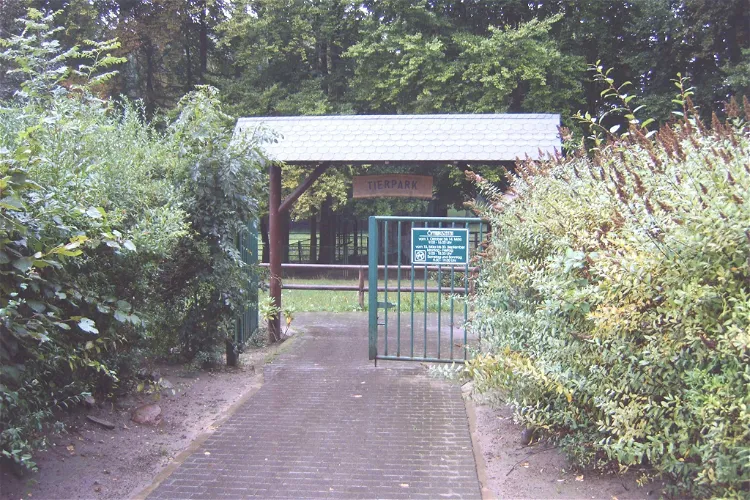
Tierpark Arche Noah
KlötzeThe Tierpark Arche Noah Klötze is a zoo situated in the city of Klötze, in the Altmarkkreis Salzwedel region of Saxony-Anhalt. The park spans 1.75 hectares and is home to approximately 150 animals, representing 20 different species.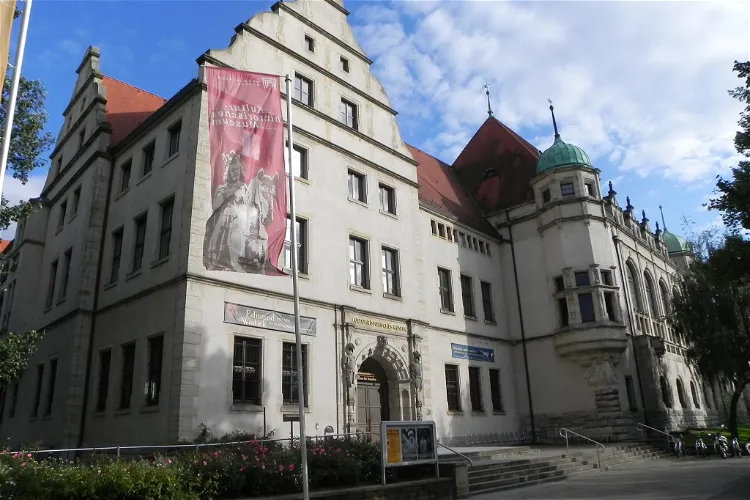
Museum of Cultural History
MagdeburgThe Kulturhistorische Museum Magdeburg (KHM), originally established in 1906 as the Kaiser-Friedrich Museum, is a cultural history museum located in Magdeburg. The museum's focus is on the city's history, which it presents through permanent and special exhibitions. It also showcases art-historical pieces.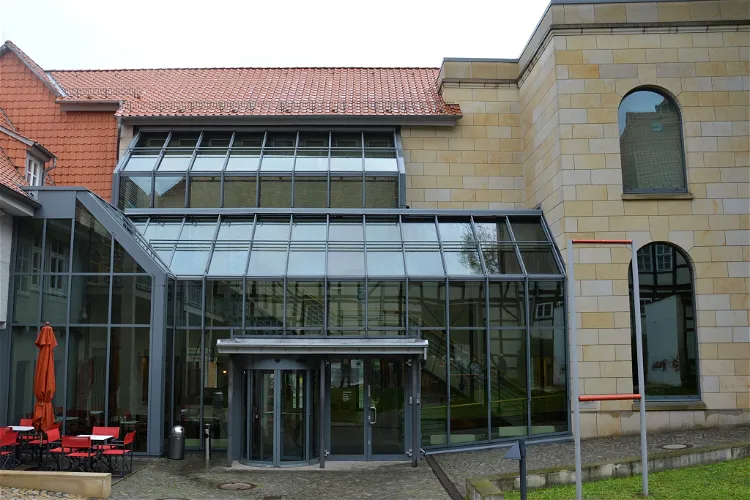
Lyonel-Feininger-Galerie
QuedlinburgThe Lyonel Feininger Museum, previously known as the Lyonel-Feininger-Galerie, is a personal museum located in the historic town of Quedlinburg. Established in 1986, the museum is dedicated to the works of the famous Bauhaus artist, Lyonel Feininger. It is a significant cultural landmark in the region and offers a unique insight into the life and works of Feininger.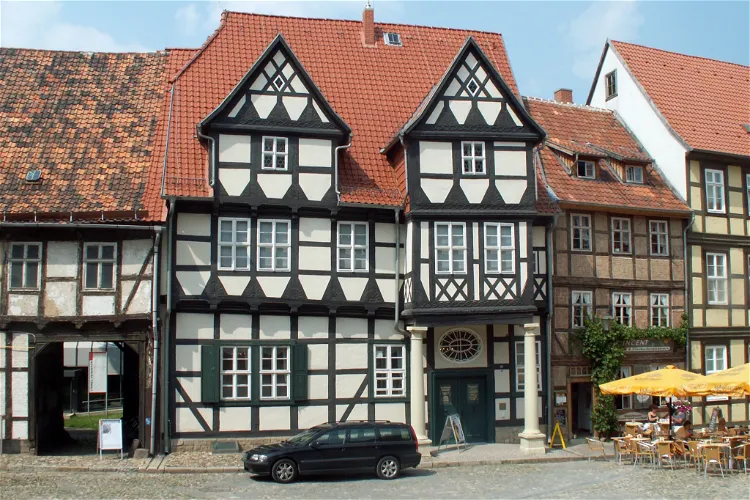
Klopstockhaus
QuedlinburgThe Klopstockhaus in Quedlinburg is a significant site as it is the birthplace of Friedrich Gottlieb Klopstock, a renowned figure in classical German literature. This historical connection adds a layer of cultural significance to the location, making it an interesting destination for those interested in literature and history.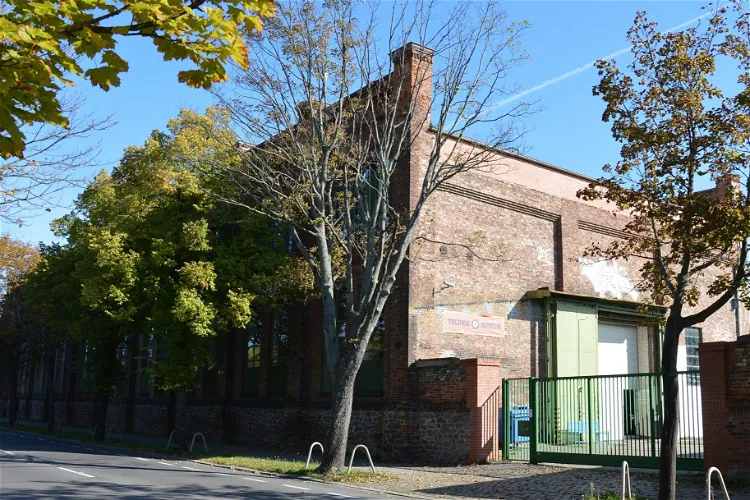
Technikmuseum
MagdeburgThe Technikmuseum Magdeburg is a unique museum located in the former steel construction hall of the heavy machinery construction combine "Ernst Thälmann". This location adds a historical and industrial touch to the museum, making it a fascinating place to visit for those interested in technology and industrial history.- 30
Dahlien-Zentrum Bad Köstritz
Dürrenberg 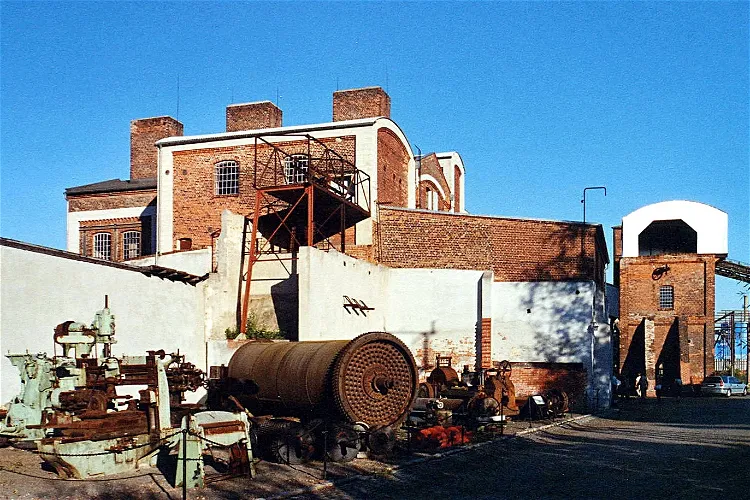
Brikettfabrik Herrmannschacht
ZeitzThe Brikettfabrik Herrmannschacht holds a significant place in industrial history as it is considered the oldest preserved briquette factory of the first generation worldwide. This makes it a unique site for those interested in industrial heritage.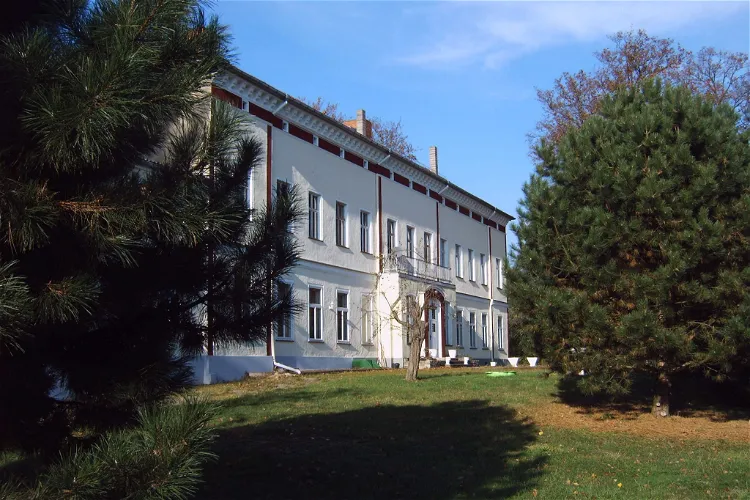
Förderverein Schloss Parchen e.V.
GenthinSchloss Parchen, also referred to as Byernsches Gutshaus, is a historical building situated in the district of Parchen in the city of Genthin, Saxony-Anhalt. This location is steeped in history and offers a unique insight into the region's past. The castle's origins are unknown, but it is mentioned as early as 1276 in historical records.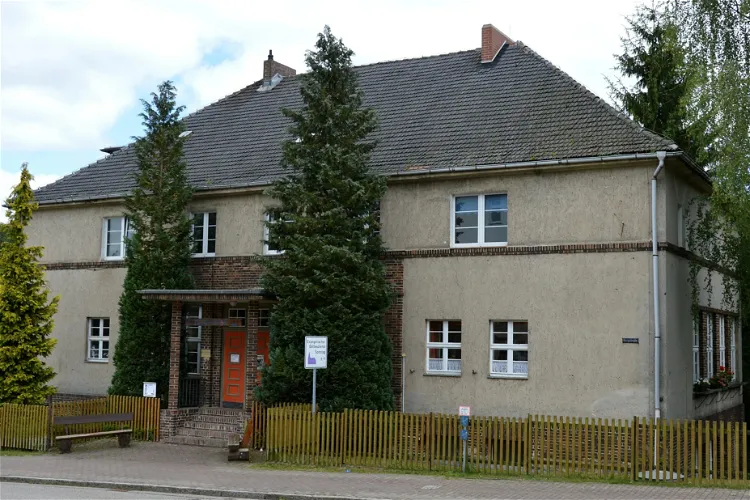
Erlebnishaus Alte Schule
HarzgerodeThe Erlebnishaus Alte Schule is a monument-protected school building situated in the town of Güntersberge, part of the city of Harzgerode in the Harz region of Saxony-Anhalt. This historic building is a significant part of the town's heritage and offers a unique insight into the region's past.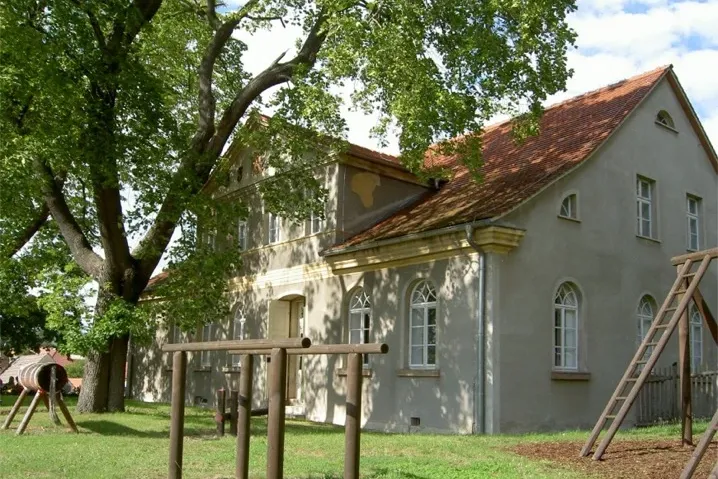
Friedrich Ludwig Jahn Museum
Freyburg (Unstrut)The Friedrich-Ludwig-Jahn-Museum is situated in a house that was constructed by Friedrich Ludwig Jahn himself in the years 1838/39. The museum is located in Freyburg (Unstrut), near the Unstrutwehr at the eastern outskirts of the city. This location offers visitors a chance to explore the historical context of Jahn's life and work.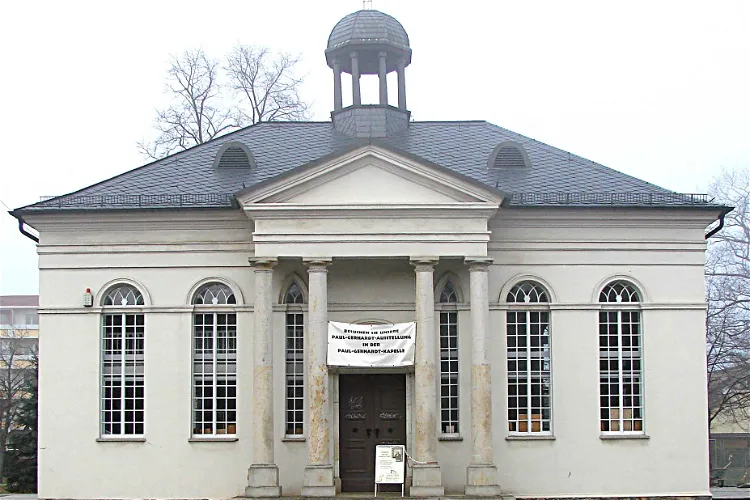
Paul-Gerhardt-Kapelle
Gräfenhainichen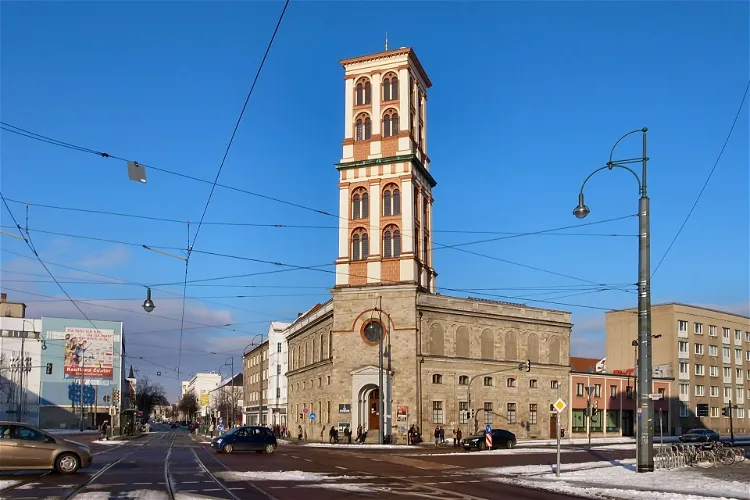
Museum für Naturkunde und Vorgeschichte
DessauThe Museum für Naturkunde und Vorgeschichte, located in Dessau-Roßlau, is a city museum that was established in 1927. It is home to a wide range of collections, including those related to archaeology, paleontology, geology, botany, and zoology. These collections provide a comprehensive overview of the natural history and prehistory of the region.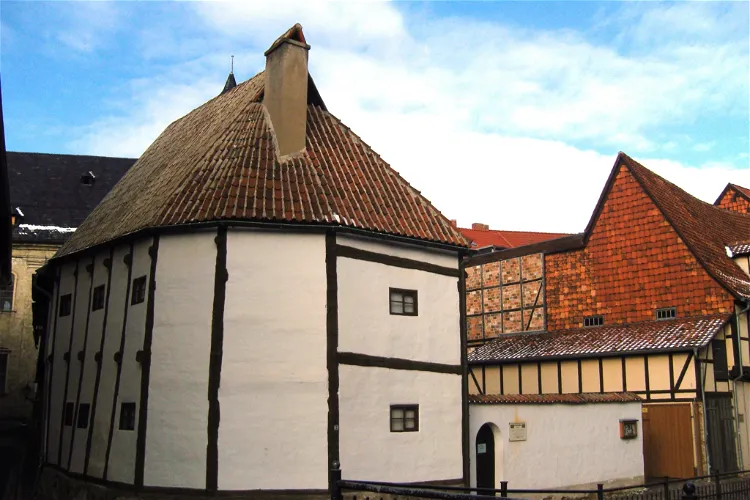
Half-timbered museum in a frame building
QuedlinburgThe Half-timbered museum Ständerbau is a significant historical site located in the heart of Quedlinburg's old town. This protected half-timbered house is situated at Wordgasse 3, where it stands as a testament to the city's rich architectural history. It is part of the UNESCO World Heritage site and is listed in the Quedlinburg monument directory as a residential house.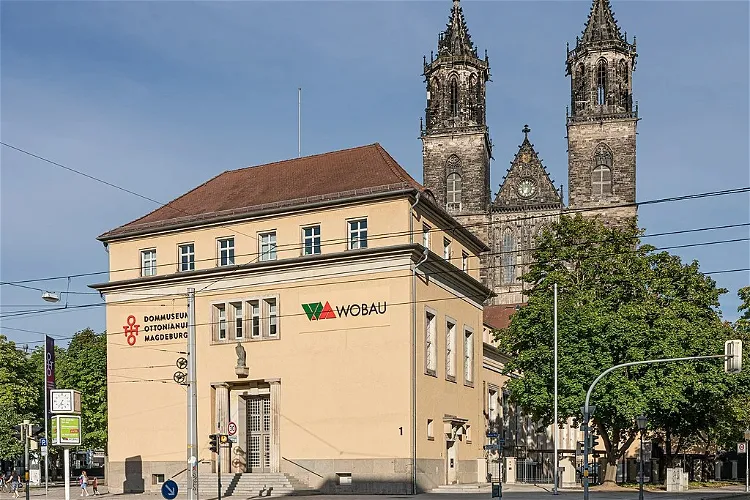
Dommuseum Ottonianum
MagdeburgThe Dommuseum Ottonianum Magdeburg, also known as DOMA, is a museum located in the city of Magdeburg. It was officially opened to the public in November 2018. The museum is a significant cultural and historical site that offers visitors a chance to delve into the rich history of the region.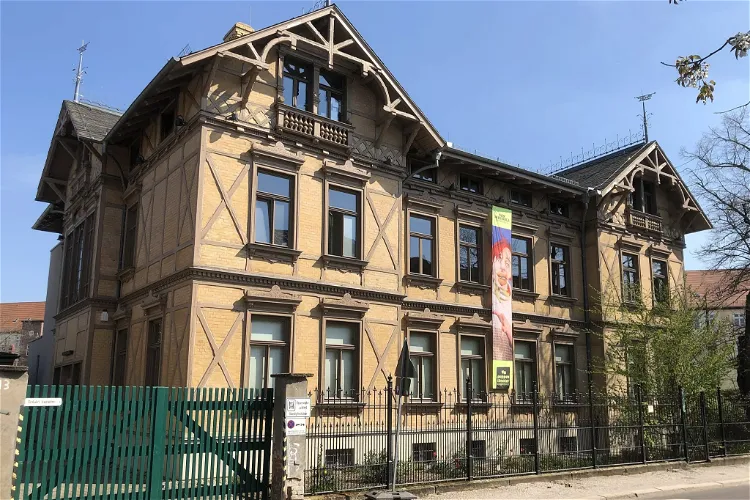
villa p. - Figurenspielsammlung Mitteldeutschland
MagdeburgThe villa p. is a significant historical site located in the Buckau district of Magdeburg. This timber-framed villa is a protected monument and is home to the Figurenspielsammlung of the Magdeburg Puppet Theatre. This makes it a unique destination for tourists interested in history, architecture, and puppetry.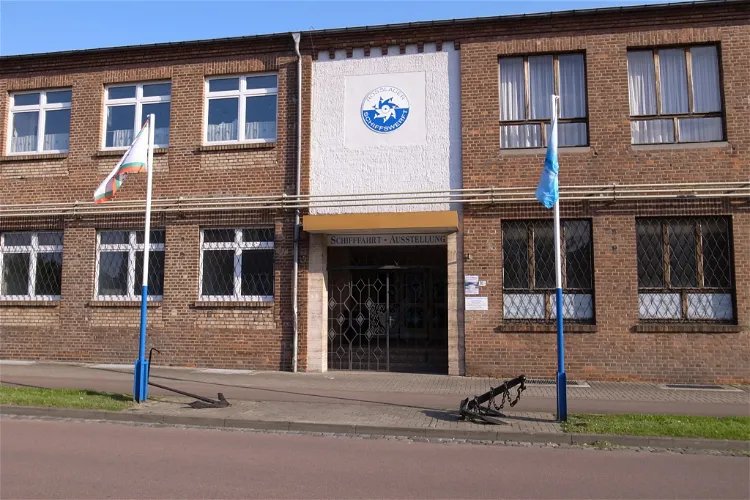
Schifffahrtsmuseum Roßlau
Roßlau (Elbe)The Schifffahrtsmuseum Roßlau, located on the grounds of the Roßlauer Schiffswerft, is dedicated to preserving and sharing the history of shipbuilding in Roßlau and the history of shipping on the Elbe. The museum's exhibits include models, drawings, photographs, and practical demonstration materials spread over approximately 300 square meters of exhibition space. This provides a comprehensive overview of the region's maritime history and traditions.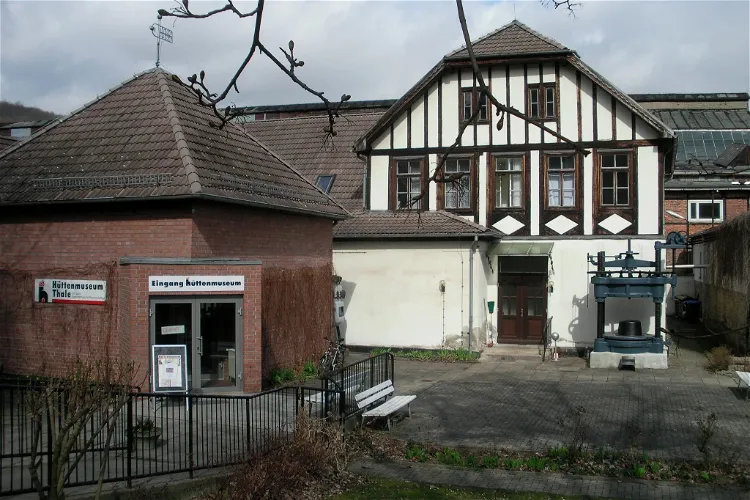
Hüttenmuseum
ThaleThe Hüttenmuseum Thale is conveniently located at the entrance of the Bodetal, just a short three-minute walk from Thale's main train station. This makes it easily accessible for tourists traveling by train.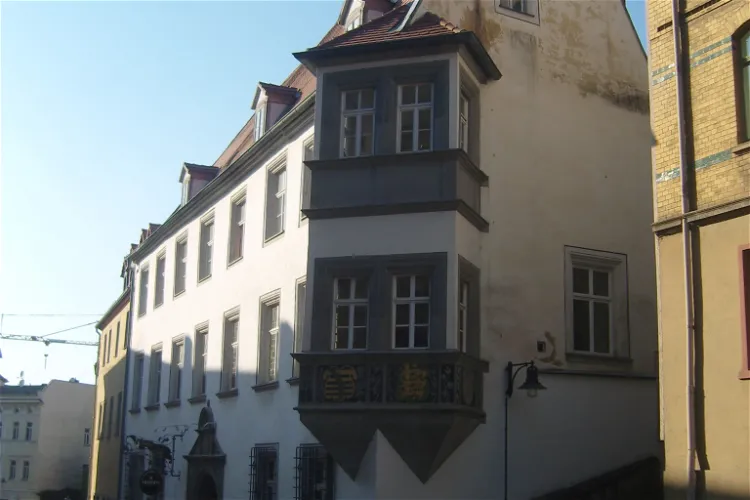
Geleitshaus
WeißenfelsThe Geleitshaus, located in the Große Burgstraße of Weißenfels, is a historical building that now houses the Gustav-Adolf-Museum and an Irish Pub. This former escort office is a significant part of the city's history and offers visitors a chance to explore the past while enjoying modern amenities.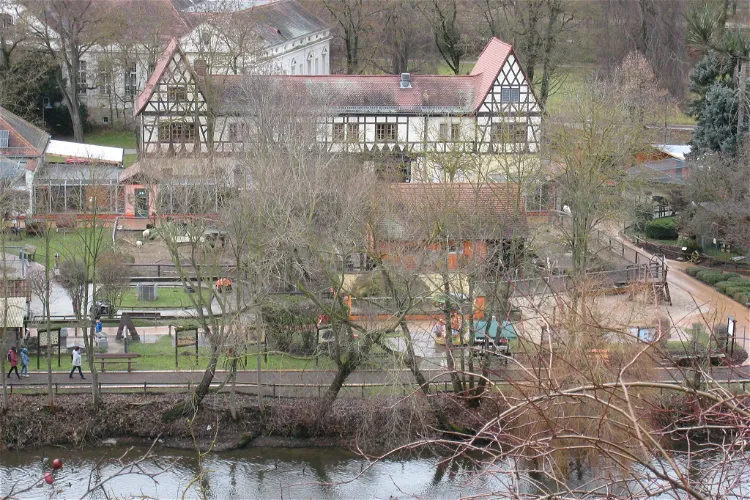
Bad Kösen Zoo
Bad Kösen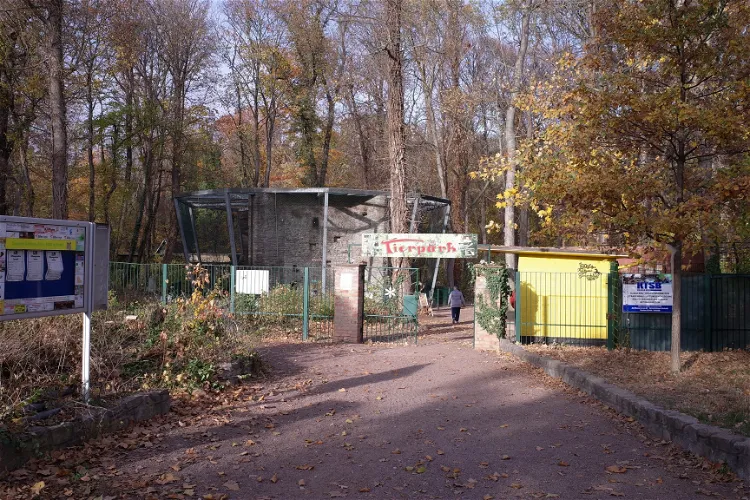
Tierpark Köthen
Köthen (Anhalt)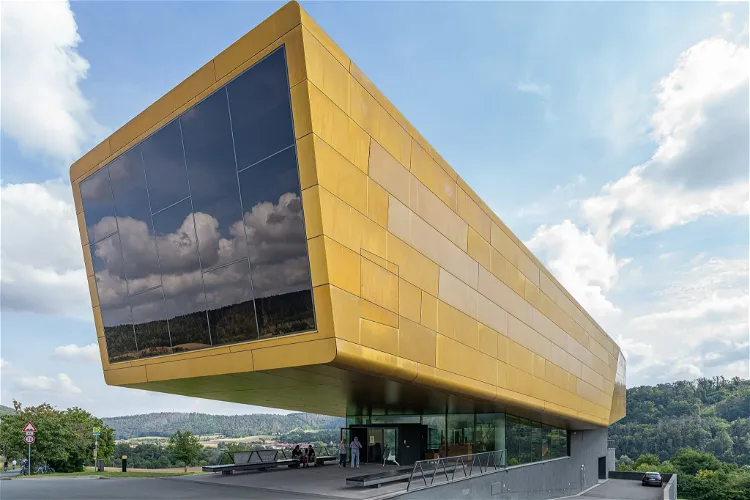
Besucherzentrum Arche Nebra
Nebra (Unstrut)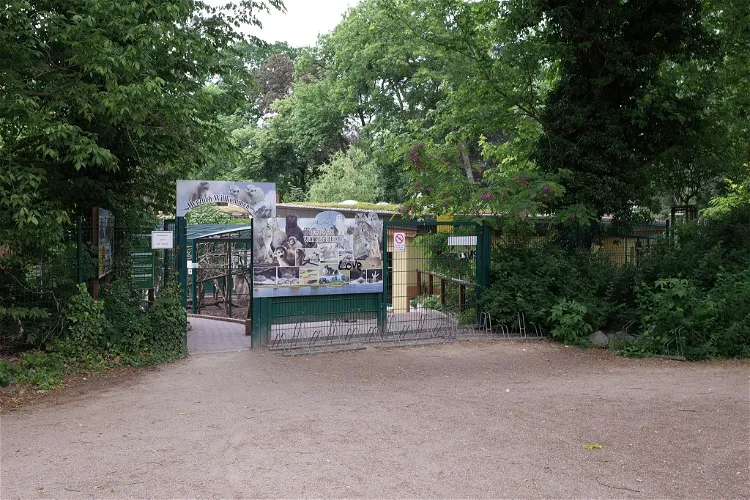
Tierpark Wittenberg
WittenbergThe Tierpark Wittenberg is a zoological garden that is situated in Juristenstraße, on the outskirts of the old town of Lutherstadt Wittenberg. This location offers visitors a unique blend of historical and natural attractions, making it an ideal destination for those interested in both history and wildlife.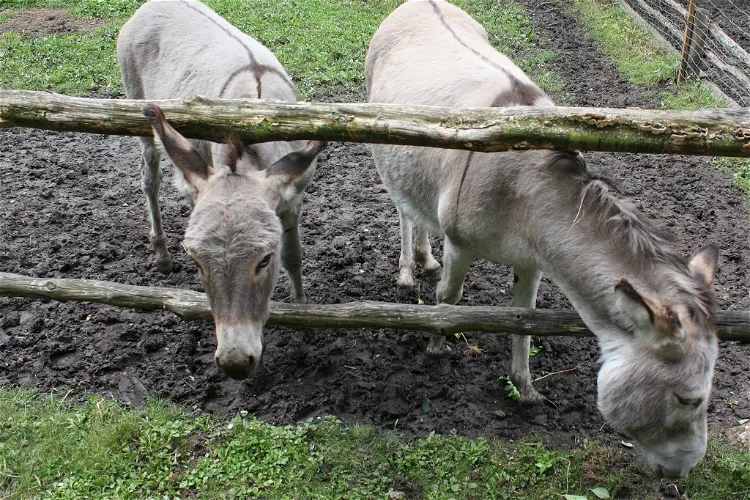
Tierpark Lützen
Lützen
Museum für Luftfahrt und Technik
WernigerodeThe Luftfahrtmuseum Wernigerode is a spacious museum that houses 50 restored aircraft and helicopters. These are displayed in four halls, covering an area of approximately 6000 square meters. This vast collection provides a comprehensive insight into the history and evolution of aviation, making it a fascinating destination for aviation enthusiasts and history buffs alike.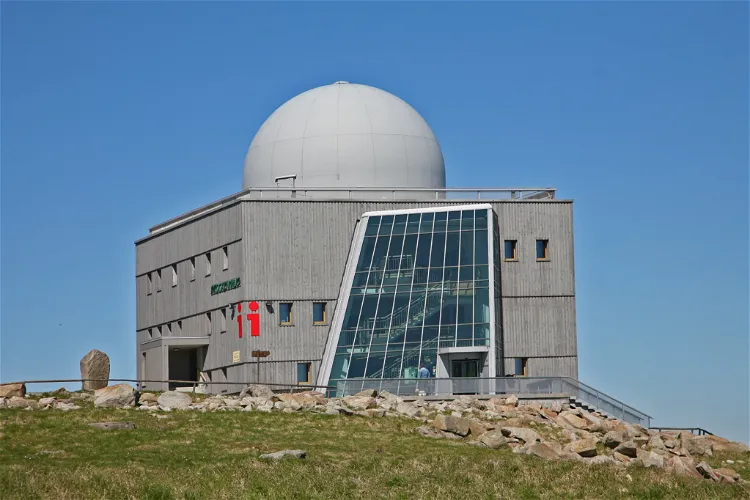
Nationalpark-Besucherzentrum Brockenhaus
WernigerodeThe Brockenhaus is a significant landmark located at the peak of the Brocken in the Harz region of Saxony-Anhalt. It serves a dual purpose as a visitor center for the Harz National Park and a museum. This makes it a key point of interest for tourists visiting the area, offering a wealth of information about the park and its surroundings.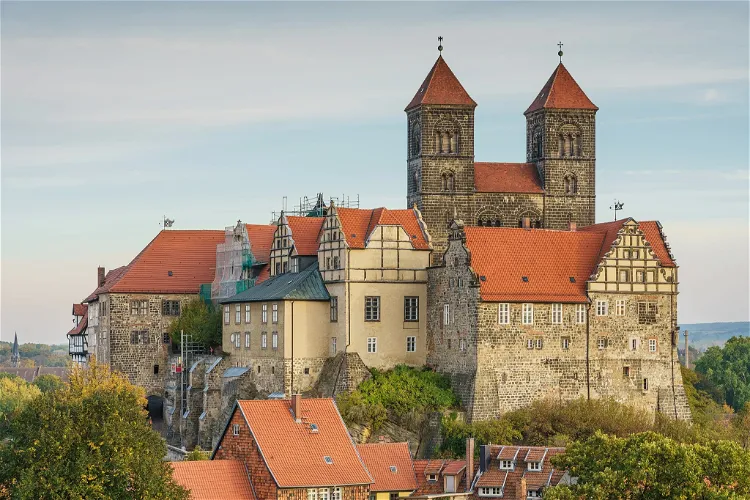
Schloßmuseum
QuedlinburgQuedlinburg Castle, also known as Schloss Quedlinburg, is a historical site that was originally part of the Quedlinburg Abbey. This castle is a significant part of the town's history and offers a glimpse into the past. Visitors can explore the castle and learn about its origins and the role it played in the history of Quedlinburg.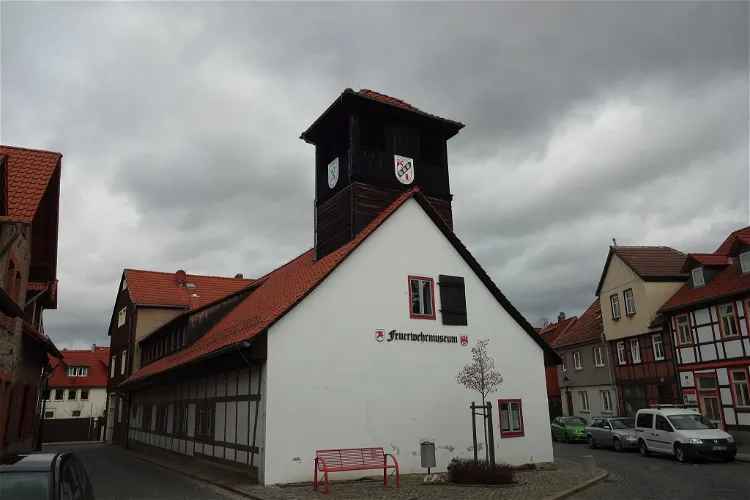
Feuerwehrmuseum
Wernigerode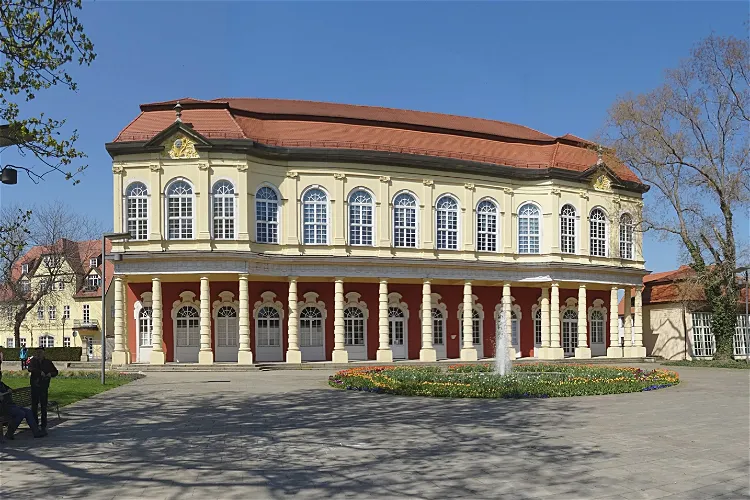
Kulturhistorisches Museum Schloss Merseburg
MerseburgSchloss Merseburg is a castle built in the Renaissance style, situated in the city of Merseburg in Saxony-Anhalt. Historically, it served as a royal palace, a bishop's seat, and a ducal residence. This rich history adds to the cultural and architectural significance of the castle, making it an interesting site for tourists.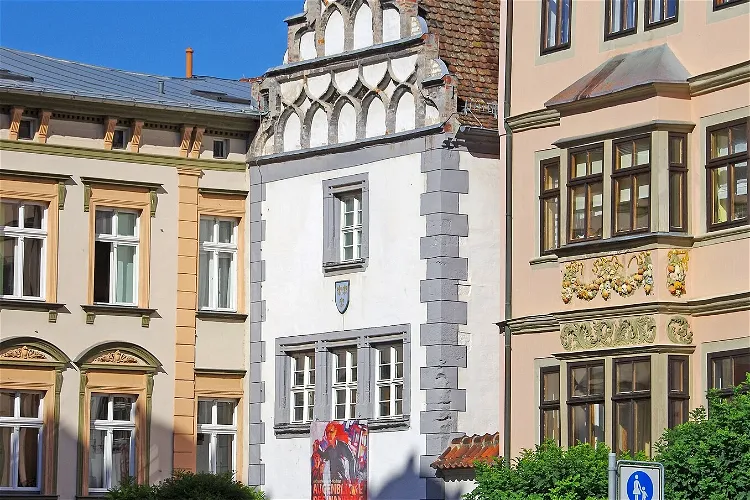
Stadtmuseum Hohe Lilie
Naumburg (Saale)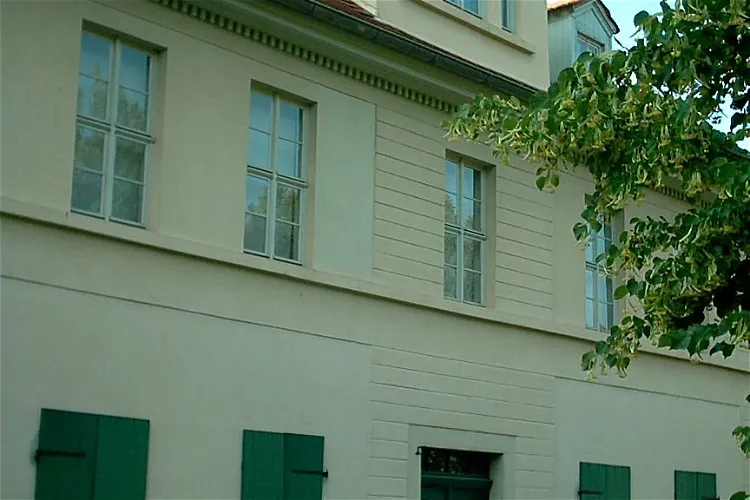
Nietzsche-Haus, Naumburg
Naumburg (Saale)The Nietzsche-Haus in Naumburg (Saale) is a museum dedicated to the life and work of the philosopher Friedrich Nietzsche. It provides an in-depth look into Nietzsche's life, his philosophies, and his influence on the world. The museum is located in the house where Nietzsche's mother, Franziska Nietzsche, moved with her two children, Friedrich and Elisabeth, in the summer of 1858.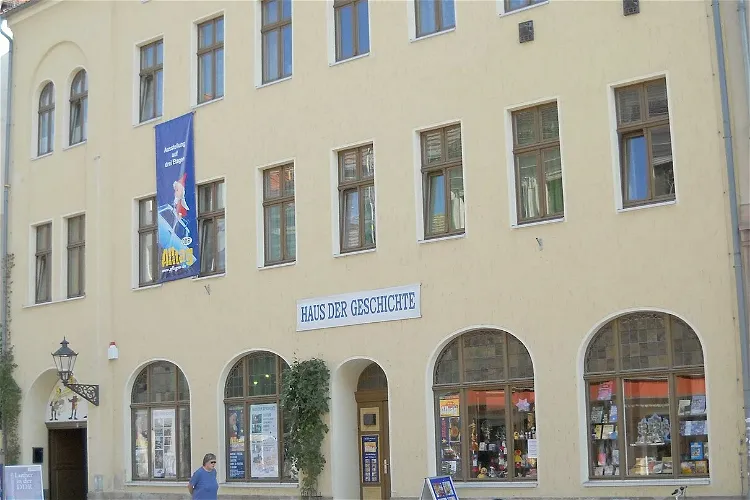
Haus der Geschichte
Wittenberg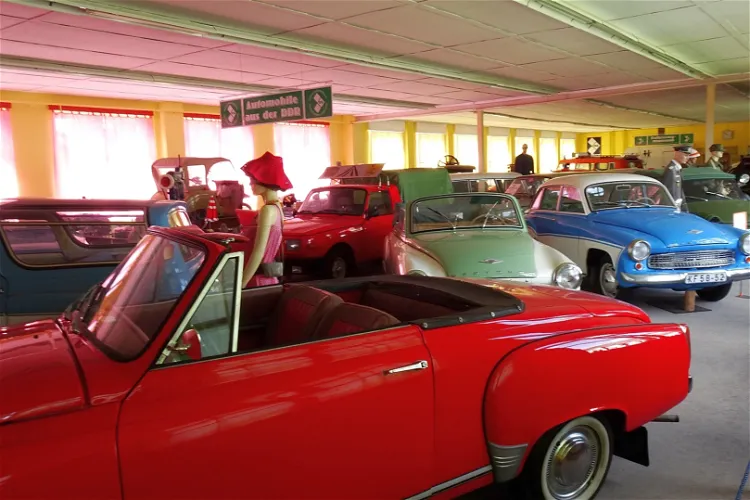
Ostdeutsches Fahrzeugmuseum Benneckenstein
BenneckensteinThe Ostdeutsches Fahrzeugmuseum Benneckenstein, previously known as the Ostdeutsches Fahrzeug- und Technikmuseum, is a museum dedicated to vintage cars. It is situated in Sachsen-Anhalt, a region known for its rich history and cultural heritage. The museum offers a unique opportunity to explore the evolution of automotive technology, particularly focusing on vehicles from the former East Germany.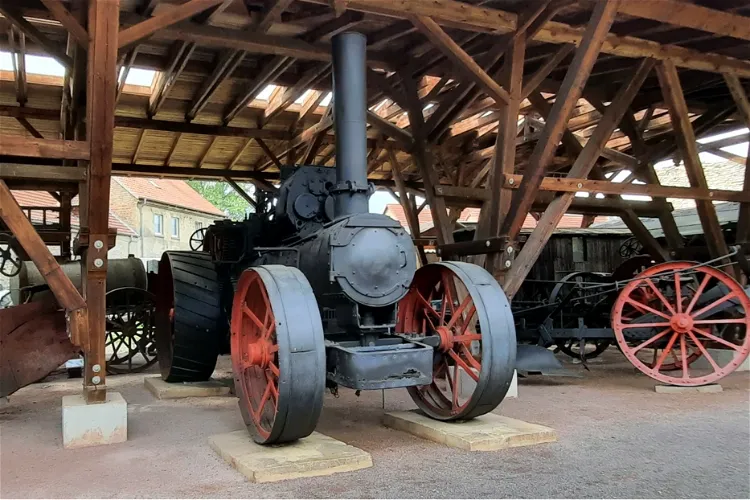
Börde-Museum Burg Ummendorf
Ummendorf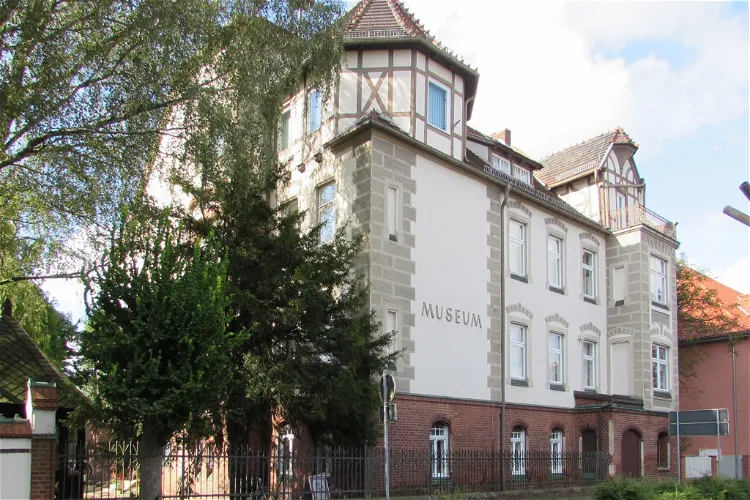
Kreismuseum Jerichower Land
GenthinThe Kreismuseum Jerichower Land, situated in the city of Genthin, is a local history museum that boasts over 25,000 exhibits. This makes it one of the largest museums in northern Saxony-Anhalt. The museum, which opened in 1886, provides a comprehensive insight into the region's history and culture.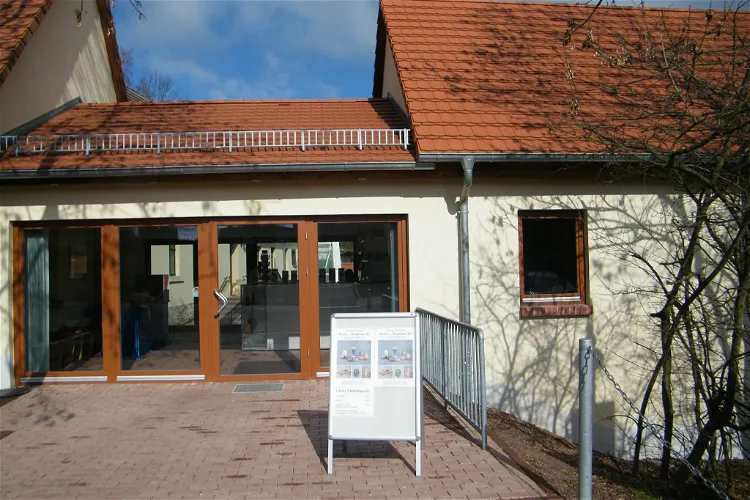
Museum Petersberg
DrehlitzThe Museum Petersberg, located in Petersberg, Saalekreis, in Saxony-Anhalt, Germany, is a regional history museum that offers visitors a glimpse into the area's past. The museum is housed in a four-sided courtyard that was once a royal Prussian forestry house. These buildings, constructed in 1752, have been largely reconstructed and are protected as historical monuments, adding to the museum's historical charm.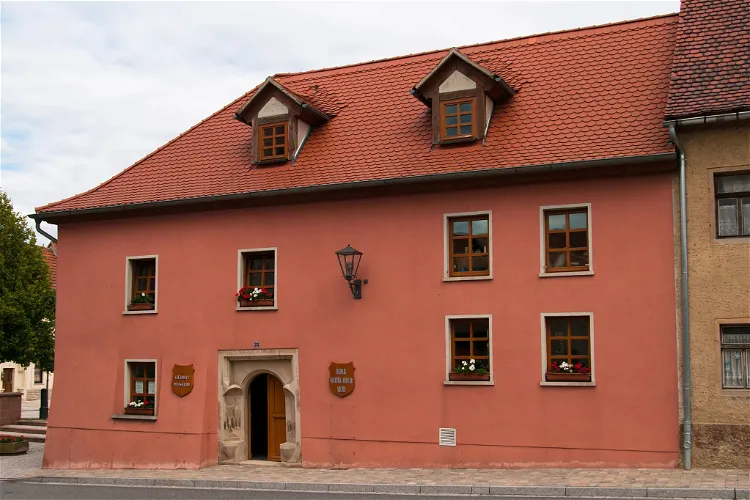
Heimatmuseum Nebra
Nebra (Unstrut)The Heimatmuseum Nebra is a local museum situated in the city of Nebra in Saxony-Anhalt. The museum is located in the former Fulsche-Haus, which was a shoemaker's house. This house was gifted to the city of Nebra in the late 1990s, and the city supported the renovation and establishment of a museum within it.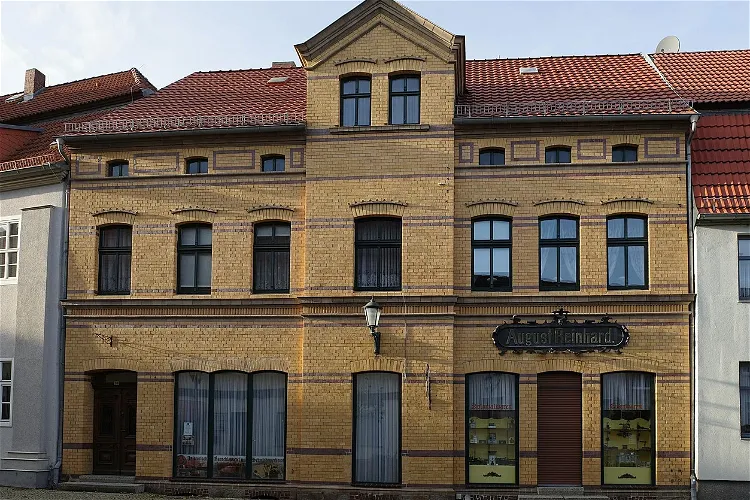
Historische Bauschlosserei & Schmiedewerkstatt
Gräfenhainichen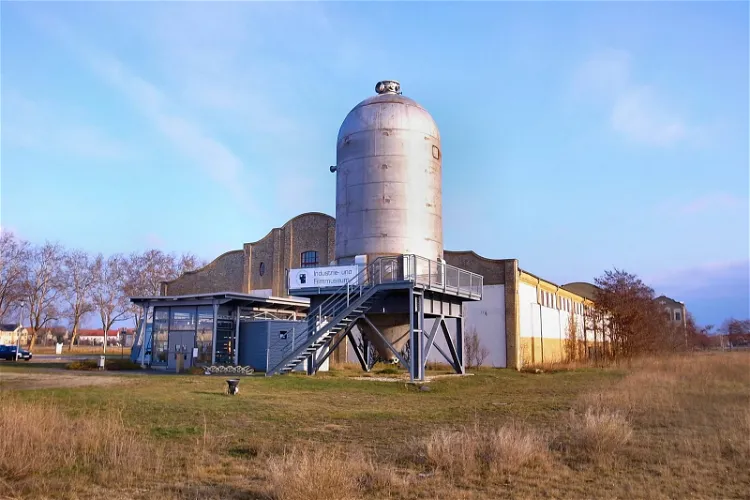
Industry and Filmmuseum
Bitterfeld-Wolfen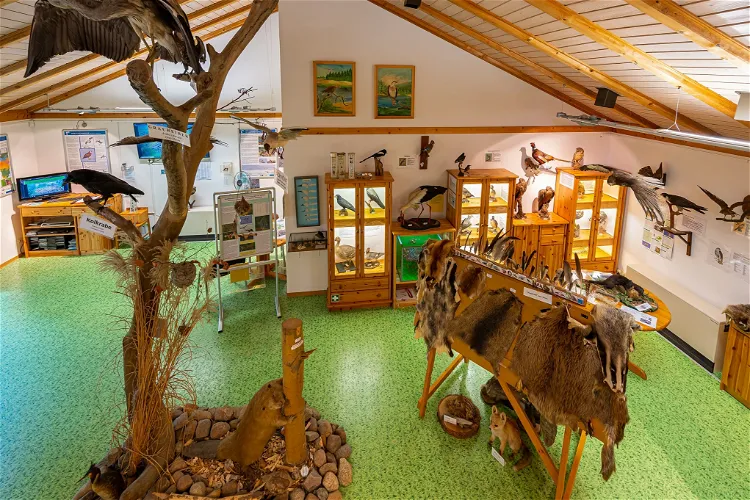
Haus am See
Schlaitz- 64
Tiergarten Zabakuck
JerichowTierpark Zabakuck is a zoological facility located in the village of Zabakuck, in the Jerichower Land district of Saxony-Anhalt. The park was officially registered as a zoo in 1970, making it one of the few faunistic facilities in the east of Saxony-Anhalt and the west of the state of Brandenburg. 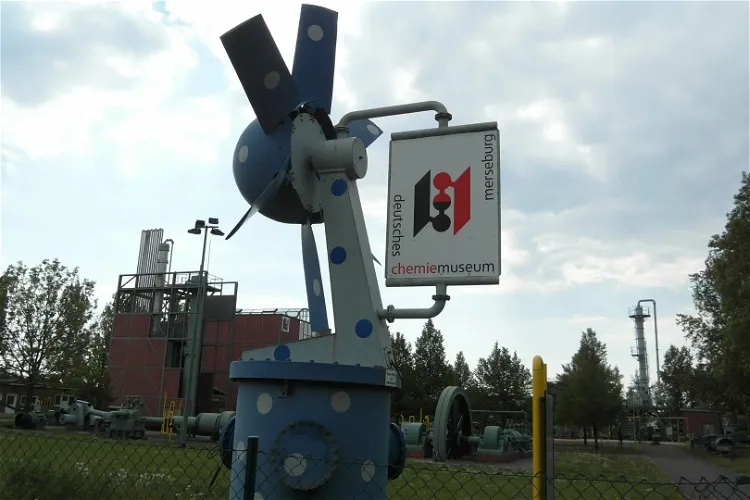
Deutsches Chemie-Museum Merseburg
MerseburgThe Deutsches Chemie-Museum Merseburg holds a unique position in Europe and enjoys a world ranking. This distinction underlines the museum's significance in the field of chemical industry history and its commitment to preserving and showcasing this important aspect of industrial heritage.- 66
Wild Park Christianental
Wernigerode 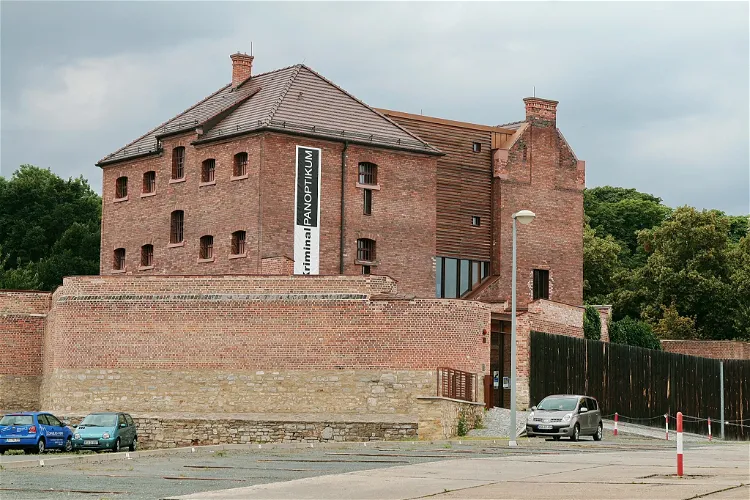
Kriminalpanoptikum
Aschersleben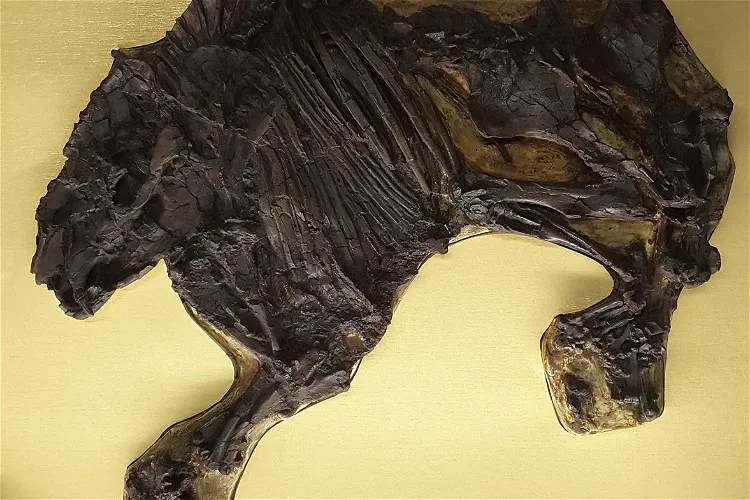
Zentralwerkstatt Pfännerhall
Braunsbedra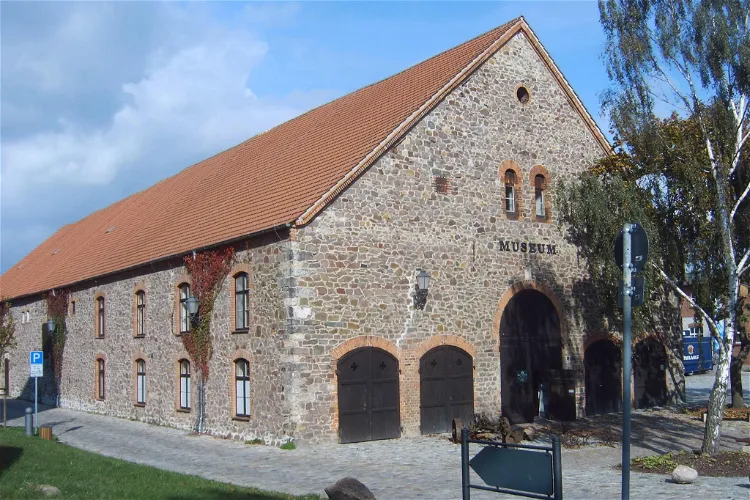
Museum Wolmirstedt
Wolmirstedt- 70
Bierer Berg Zoo
Schönebeck (Elbe)The Bierer Berg Zoo is a zoological garden situated in Schönebeck (Elbe) in Saxony-Anhalt, Germany. Established in 2005, the zoo has been a place of interest for tourists and locals alike, offering a unique experience of wildlife in a serene environment. 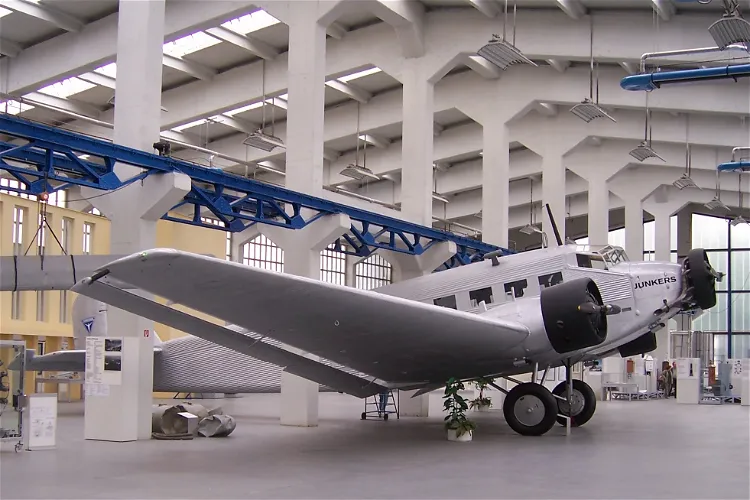
Technikmuseum Hugo Junkers
DessauThe Hugo-Junkers Museum is situated in the Klein-Kühnau district of Dessau-Roßlau. This location is easily accessible and offers a unique opportunity to explore the industrial achievements of the aircraft manufacturer Hugo Junkers.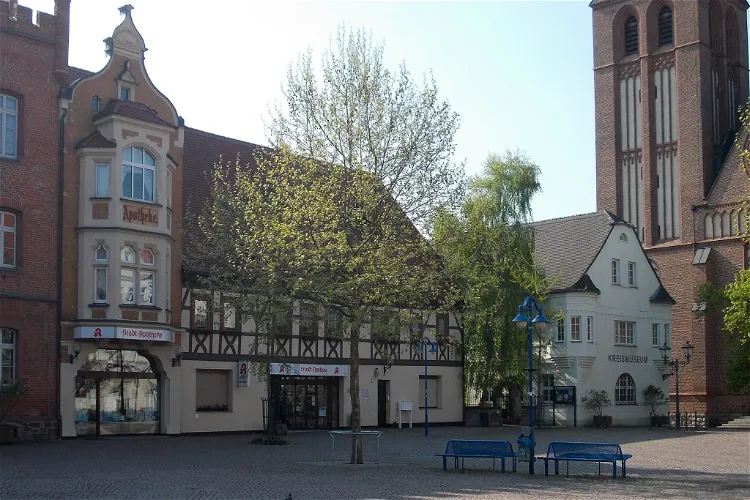
Kreismuseum Bitterfeld
Bitterfeld-WolfenThe Kreismuseum Bitterfeld, located in Bitterfeld-Wolfen, was established in 1892 by Emil Obst. It was initially created as a city collection of Saxon antiquities, with a particular focus on items from the city and district of Bitterfeld. This historical context provides a unique insight into the region's past, making it a fascinating destination for those interested in history and culture.- 73
Eulenwelt Falkenhof Harz
Harzgerode 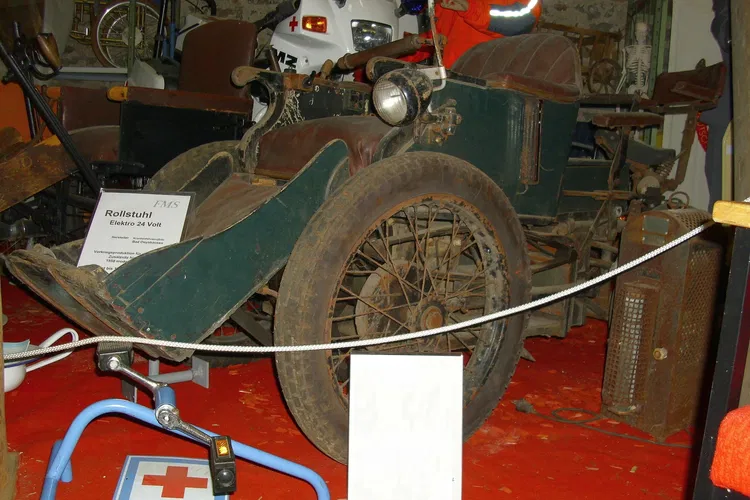
Fahrzeugmuseum Staßfurt
StaßfurtThe Fahrzeugmuseum Staßfurt, located in Sachsen-Anhalt, is a museum dedicated to vintage cars. It was opened by Ingo Schramm in 2004, initially as the Fahrzeugmuseum Glöthe. The museum's name changed following the incorporation of Glöthe into the city of Staßfurt.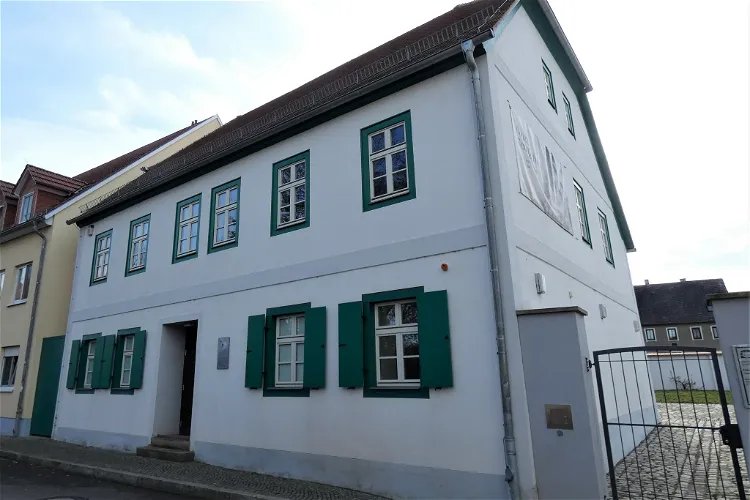
Neues Schillerhaus
Goethestadt Bad Lauchstädt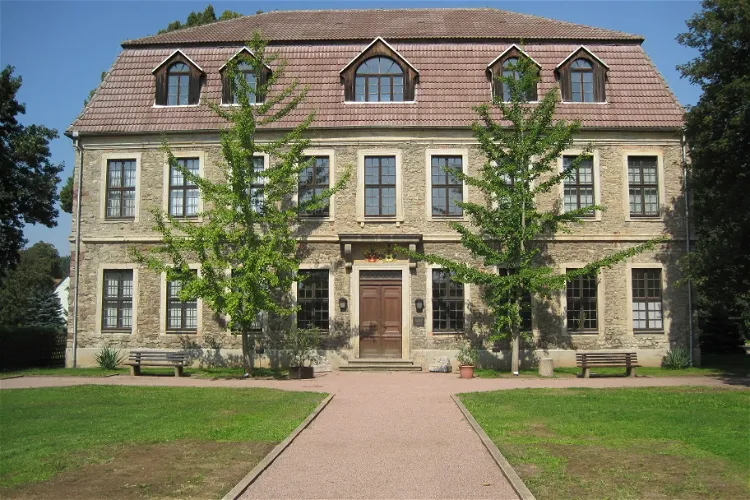
Mansfeld Museum im Humboldt-Schloss Hettstedt
HettstedtThe Mansfeld Museum, located in the Burgörner district of the city of Hettstedt in the Mansfeld-Südharz district in Saxony-Anhalt, is dedicated to the history of Mansfeld copper shale mining. This museum provides a comprehensive insight into the rich mining history of the region, making it an interesting destination for those interested in industrial history and geology.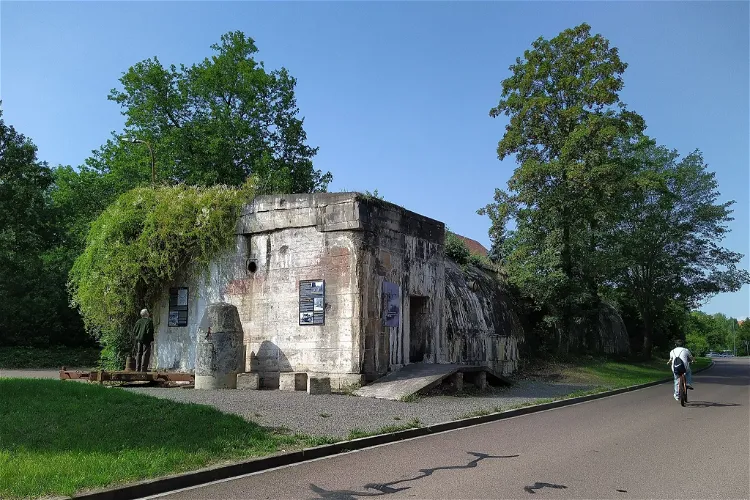
B134a - Luftschutzbunker Krumpa
BraunsbedraThe B134a - Luftschutzbunker Krumpa is a significant historical site located in Saxony-Anhalt. This air-raid shelter, built in 1944 during World War II, served a crucial role as a protection and command bunker for the administration and management of the Lützkendorf mineral oil plant, owned by Wintershall A.G. at the time.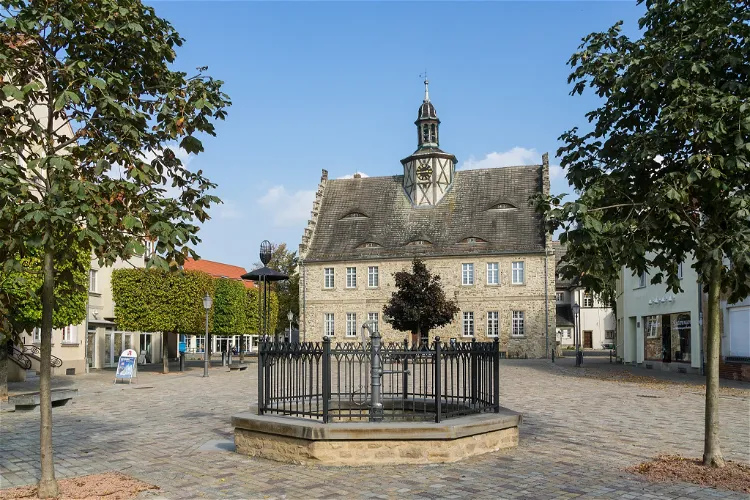
Salzlandmuseum
Schönebeck (Elbe)The Salzlandmuseum in Schönebeck (Elbe) holds a unique position as the only district museum of the Salzlandkreis. Established in 1924, the museum moved to its current location in the former town hall of Bad Salzelmen, previously known as Groß Salze, in 1954. This historical building adds to the charm and authenticity of the museum experience.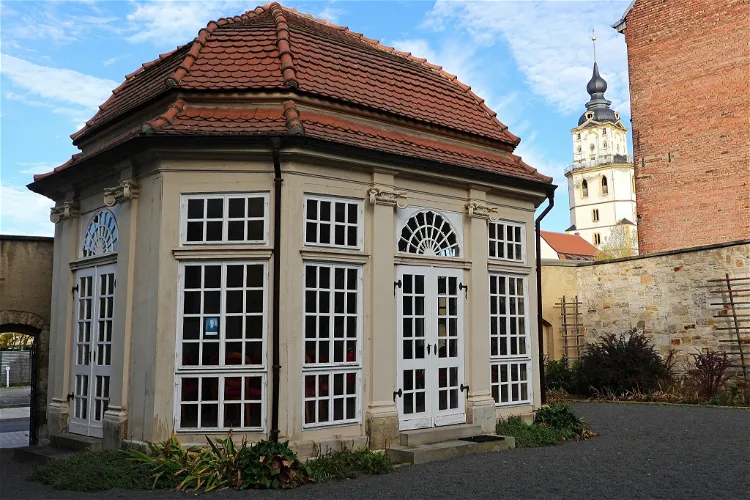
Novalis-Gedenkstätte
Weißenfels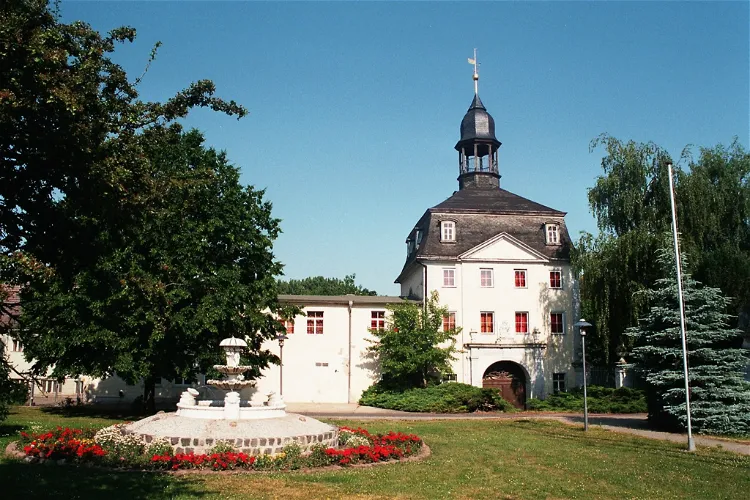
Van de Merwe Museum im Biendorfer Schloss
Bernburg (Saale)Schloss Biendorf is a historical site located in Biendorf, a district of the city of Bernburg in the Salzlandkreis in Saxony-Anhalt. The castle was initially built around 1720 and later expanded in the late Baroque period between 1759 and 1784. This historical monument offers a glimpse into the architectural styles and cultural heritage of the period.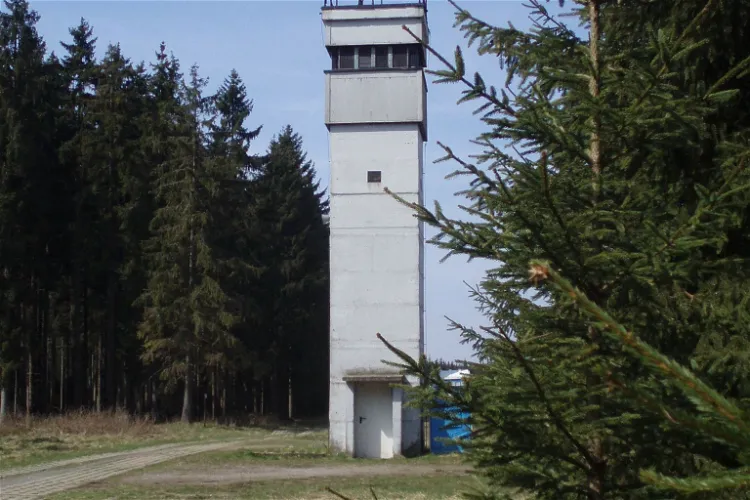
Sorge Border Museum
SorgeThe Sorge Border Museum is a public open-air museum located near Sorge in the Harz Mountains of central Germany. It is free of charge and offers a unique opportunity to explore the history of the region.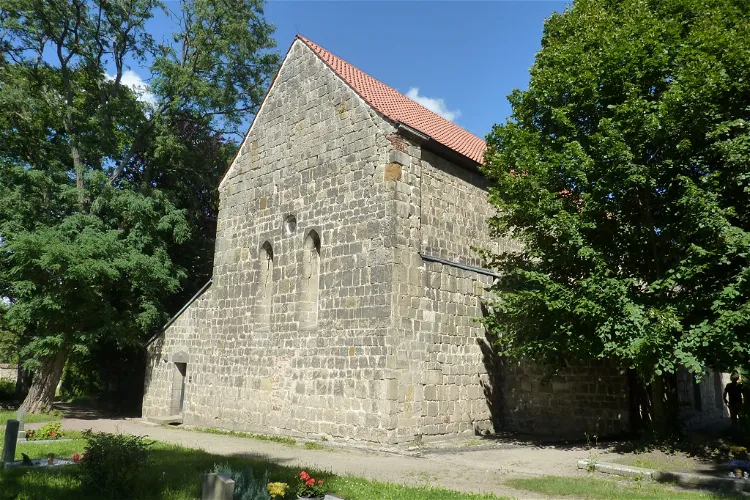
St. Wiperti Kirche
QuedlinburgSt. Wiperti is a church situated in the southwest of the castle hill in Quedlinburg. The church is dedicated to the saints Wigbert and James. This historical site is a testament to the architectural mastery of the Romanesque period, with its crypt and church bearing witness to its significant past as a royal court of the Saxon-Ottonian ruling house.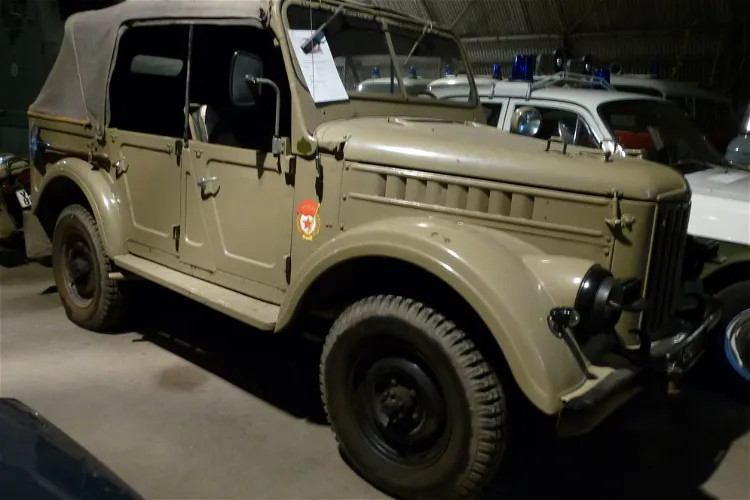
Blaulichtmuseum Beuster
SeehausenThe Blaulichtmuseum Beuster is open to the public daily during the summer season. In the winter, the museum operates five days a week, providing ample opportunity for visitors to explore its exhibits.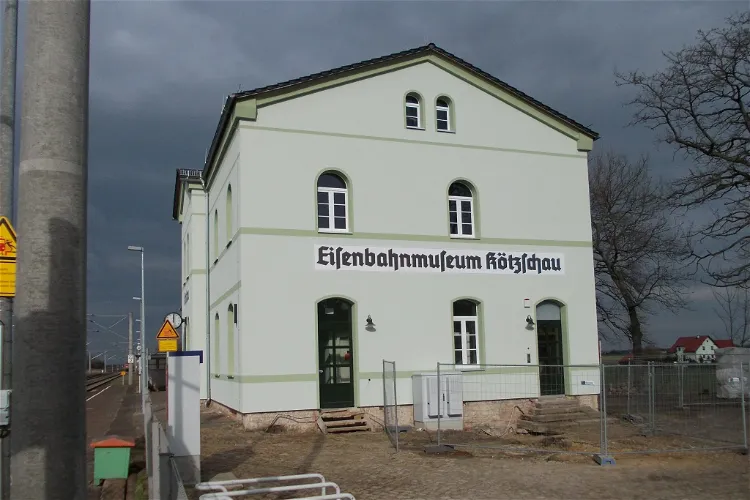
Eisenbahnmuseum Kötzschau
LeunaThe Eisenbahnmuseum Kötzschau, situated in the Kötzschau railway station building, has been welcoming visitors since the spring of 2014. The museum is dedicated to the history of the Leipzig–Großkorbetha railway line, providing an in-depth look into the past of this significant transportation route.- 85
Heimatnaturgarten
Weißenfels 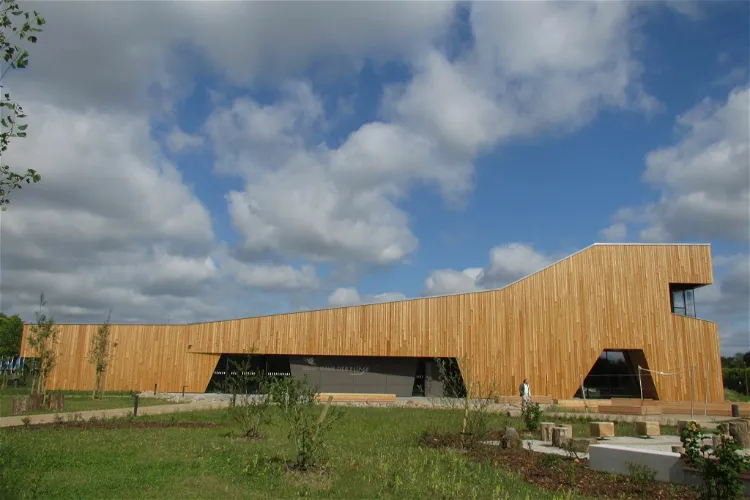
Haus der Flüsse
Havelberg- 87
ErlebnisZentrum Bergbau Röhrigschacht Wettelrode
Sangerhausen 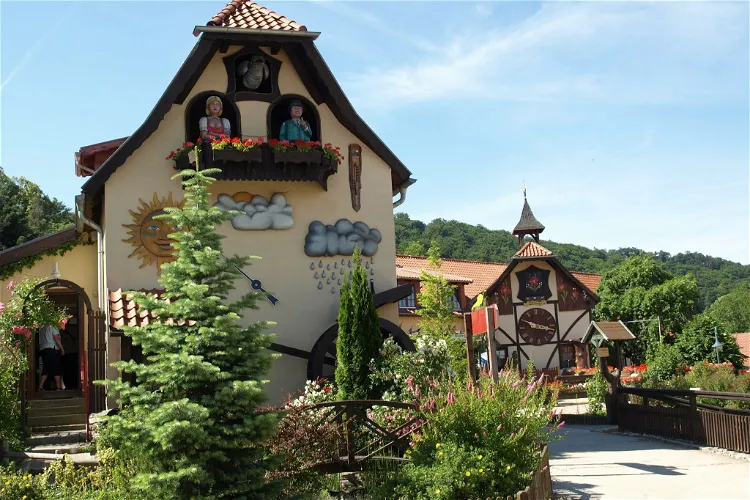
Harzer Uhrenmuseum
Quedlinburg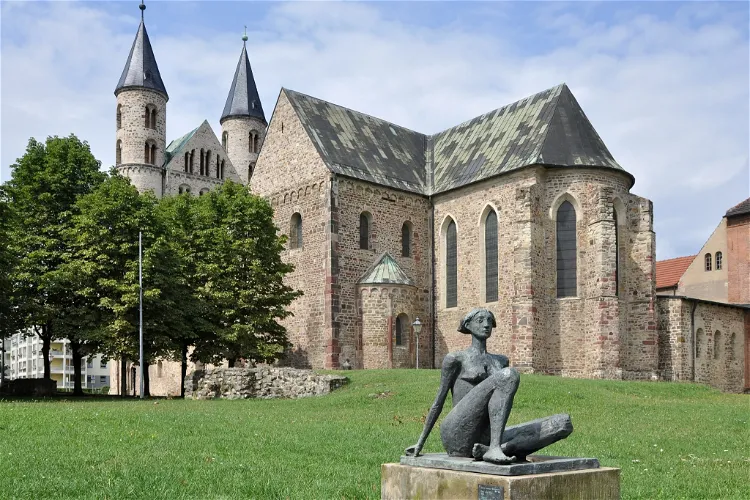
Kunstmuseum Kloster Unser Lieben Frauen
MagdeburgThe Kunstmuseum Magdeburg is the city's museum for contemporary art. It is conveniently located in the heart of the old town, close to the Elbe River and the Magdeburg Cathedral. This location makes it an easy addition to any tourist's itinerary, offering a chance to explore the rich contemporary art scene of the city.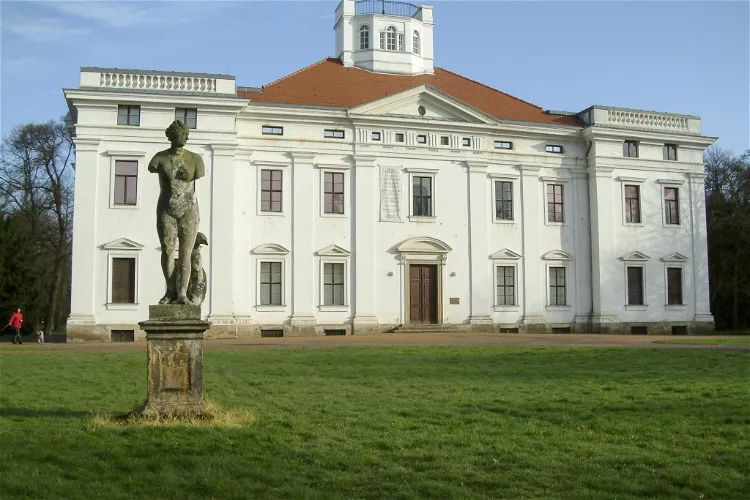
Anhaltische Gemäldegalerie
DessauThe Anhaltische Gemäldegalerie Dessau is an art museum located in the independent city of Dessau-Roßlau. The museum's collection primarily focuses on works of the Old Masters, offering visitors a chance to explore a wide range of historical art pieces.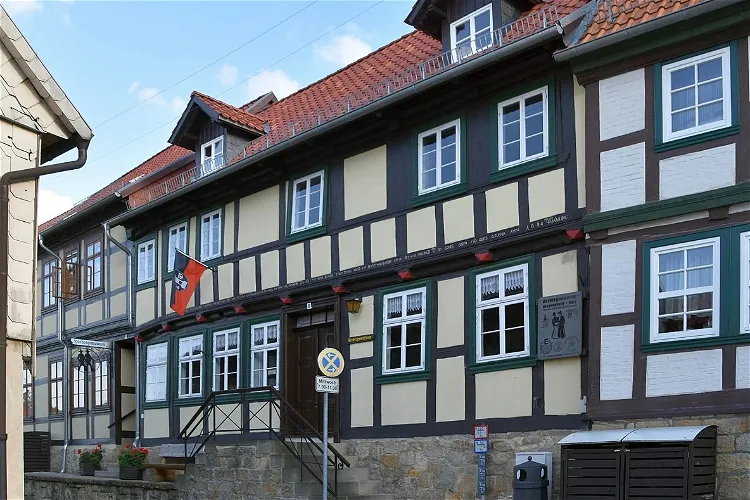
Herbergsmuseum
BlankenburgThe Herbergsmuseum, located at Bergstraße 15 in Blankenburg (Harz), holds a unique position in Germany as the only museum developed from a historical journeymen's hostel. This makes it a distinctive destination for those interested in history and culture.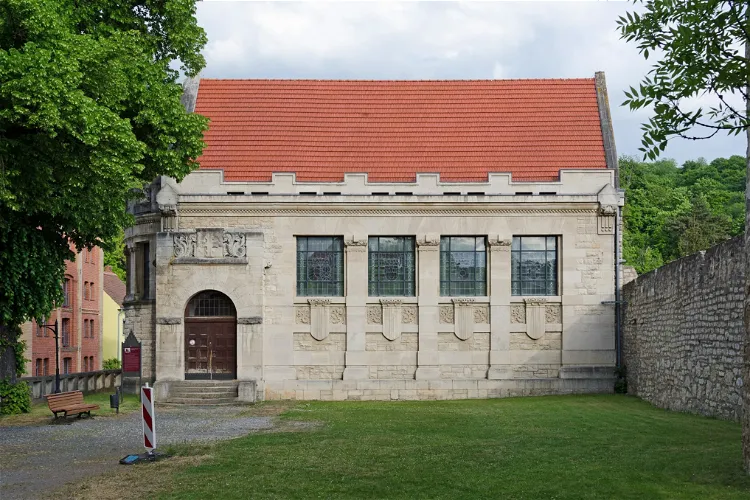
Friedrich-Ludwig-Jahn Ehrenhalle
Freyburg (Unstrut)The Friedrich-Ludwig-Jahn-Ehrenhalle, located in Freyburg (Unstrut), was originally established as a museum dedicated to Friedrich Ludwig Jahn. Today, it serves as a venue for festive events and scientific conferences, and also hosts the member meetings of the Friedrich-Ludwig-Jahn-Gesellschaft e.V. The building is protected as a historical monument, adding to its cultural and historical significance.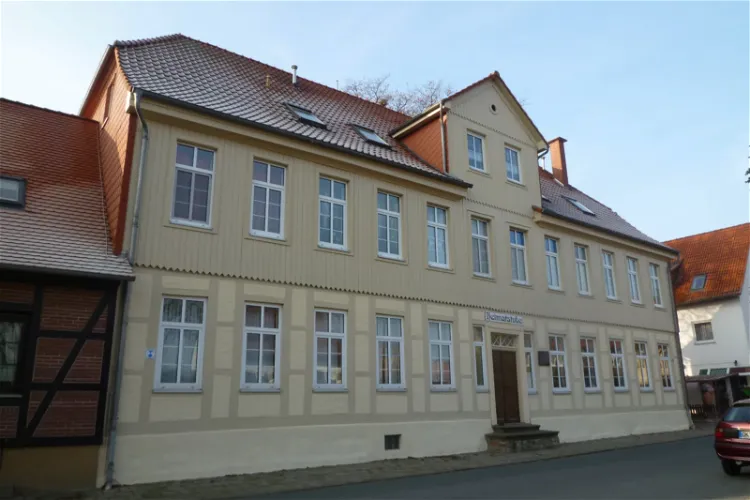
Heimatstube Calvörde
Calvörde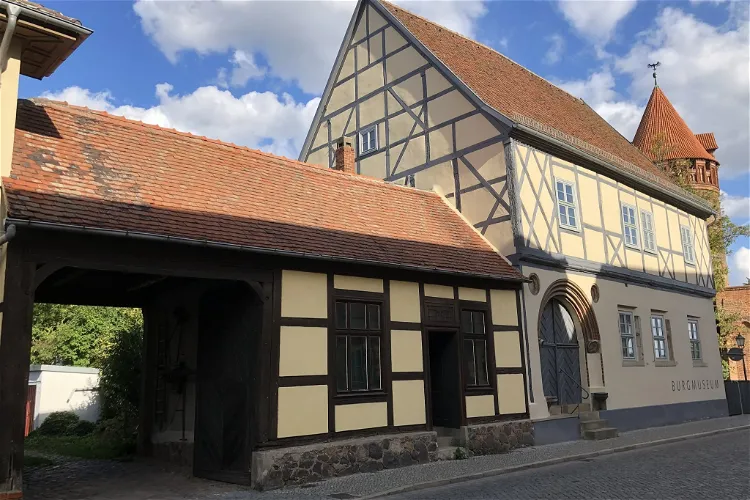
Burgmuseum Schloßfreiheit
TangermündeThe Burgmuseum Schloßfreiheit, located in Tangermünde in Saxony-Anhalt, is a protected former residence that now serves as a museum. It provides a detailed history of the neighboring Tangermünde Castle, making it a significant site for those interested in the region's past.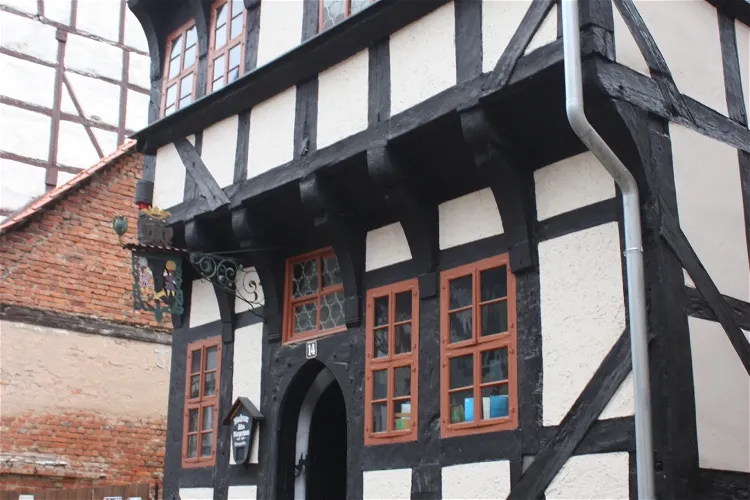
Museum Kleines Bürgerhaus
Stolberg (Harz)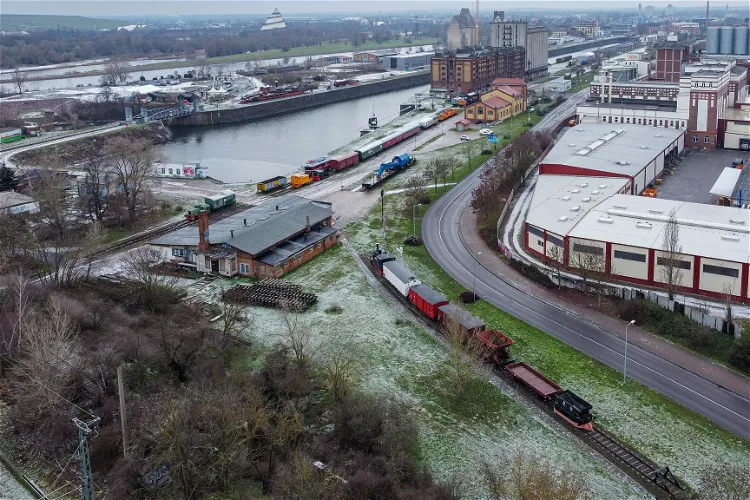
Magdeburger Eisenbahnfreunde e.V.
MagdeburgThe Magdeburger Eisenbahnfreunde (MEBF) is a group of railway enthusiasts based in Magdeburg. Their main focus is on the preservation, restoration, and maintenance of historic railway vehicles. They are also committed to promoting interest in railway history. This includes the restoration of steam locomotives, diesel locomotives, railcars, and other historic vehicles. Their goal is to preserve these vehicles for future generations and occasionally make them available for special occasions such as museum trips, special trips, or events.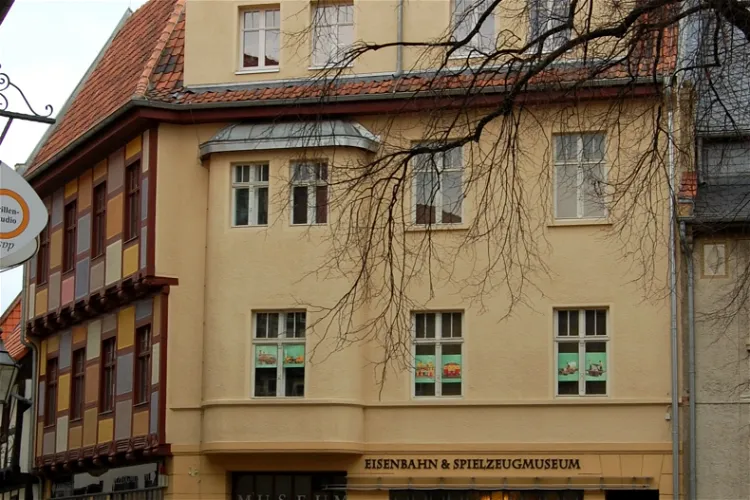
Mitteldeutsches Eisenbahn- und Spielzeugmuseum
QuedlinburgThe Mitteldeutsches Eisenbahn- und Spielzeugmuseum is a specialized museum situated in the historic town of Quedlinburg, in the Harz district of Saxony-Anhalt, Germany. This museum offers a unique experience for visitors interested in railways and toys, providing a glimpse into the past with its extensive collection.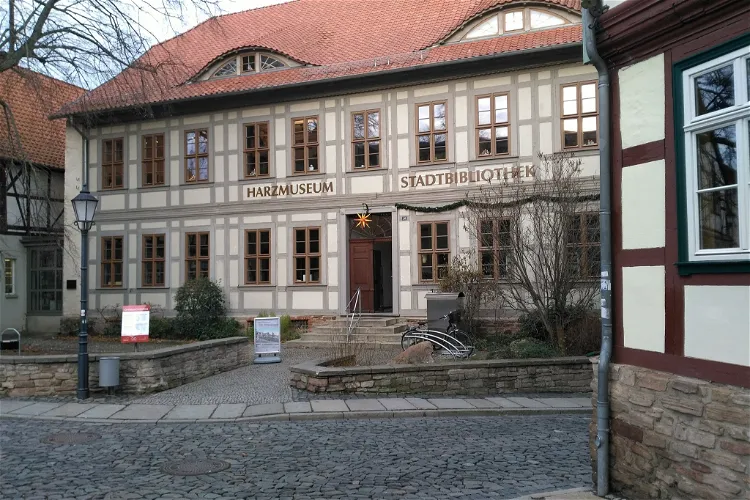
Harzmuseum
WernigerodeThe Harzmuseum Wernigerode is the city museum located in the Harz region, specifically in the city of Wernigerode. It is conveniently situated near the Wernigerode Town Hall, making it easily accessible for tourists visiting the city.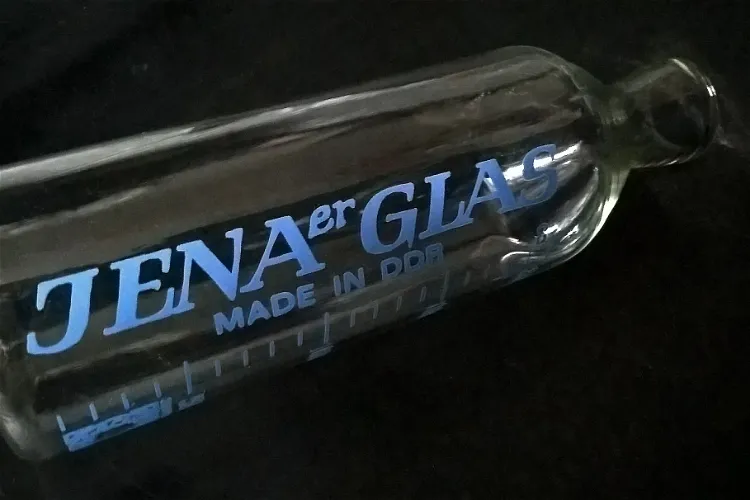
Museum form gestaltung in der ddr
WernigerodeDDR-Design, also known as socialist design or form design, refers to products that were designed and manufactured between 1949 and 1989 in the German Democratic Republic. The design is characterized by its functionality and reduction to the essentials. This design approach was a result of the scarcity of raw materials and the planned economy, which prioritized the longevity of the products.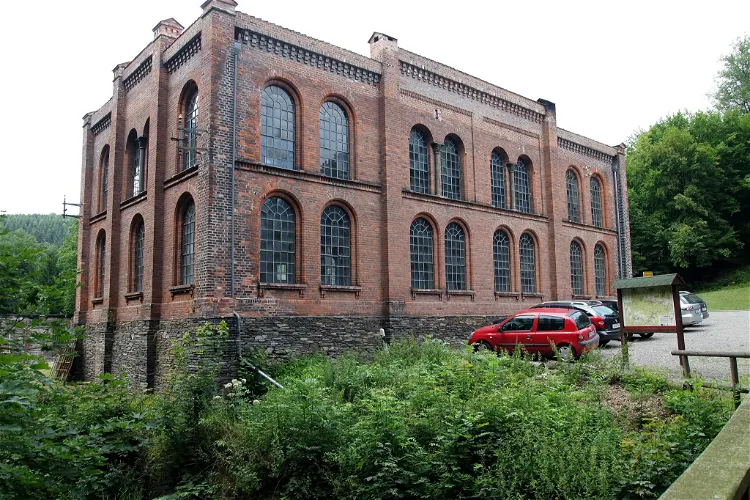
Maschinenfabrik Carlswerk
HarzgerodeThe Maschinenfabrik Carlswerk is a historical site located in Mägdesprung, a district of the town of Harzgerode in Saxony-Anhalt. This former machine factory offers a glimpse into the industrial past of the region and is a significant part of its cultural heritage.